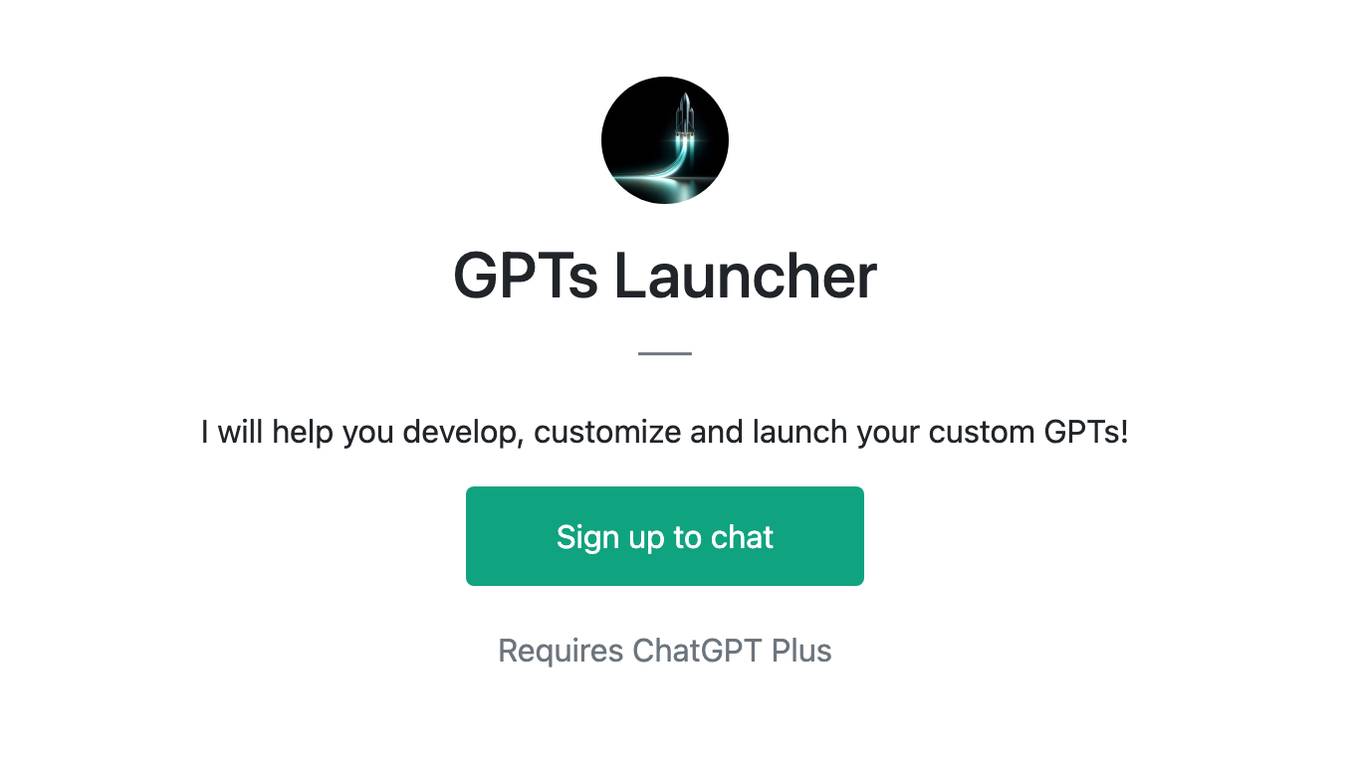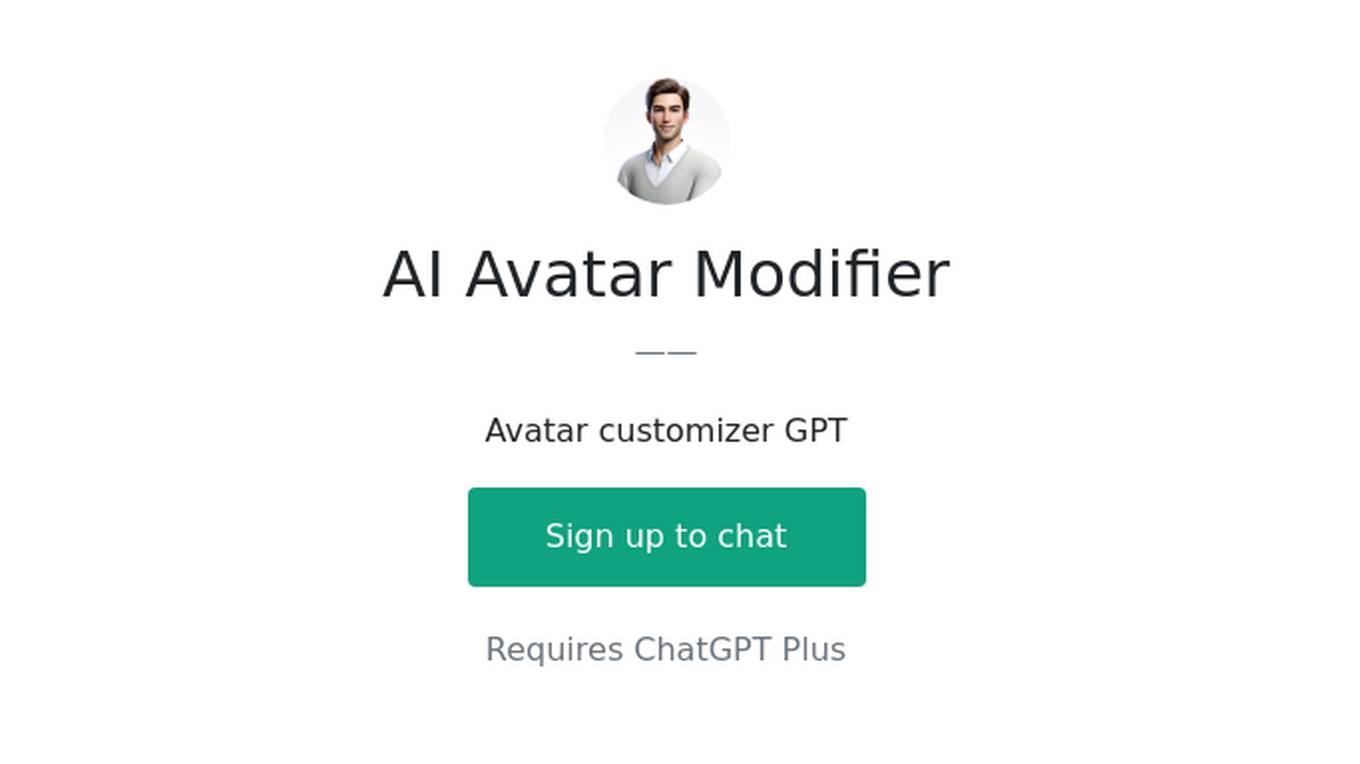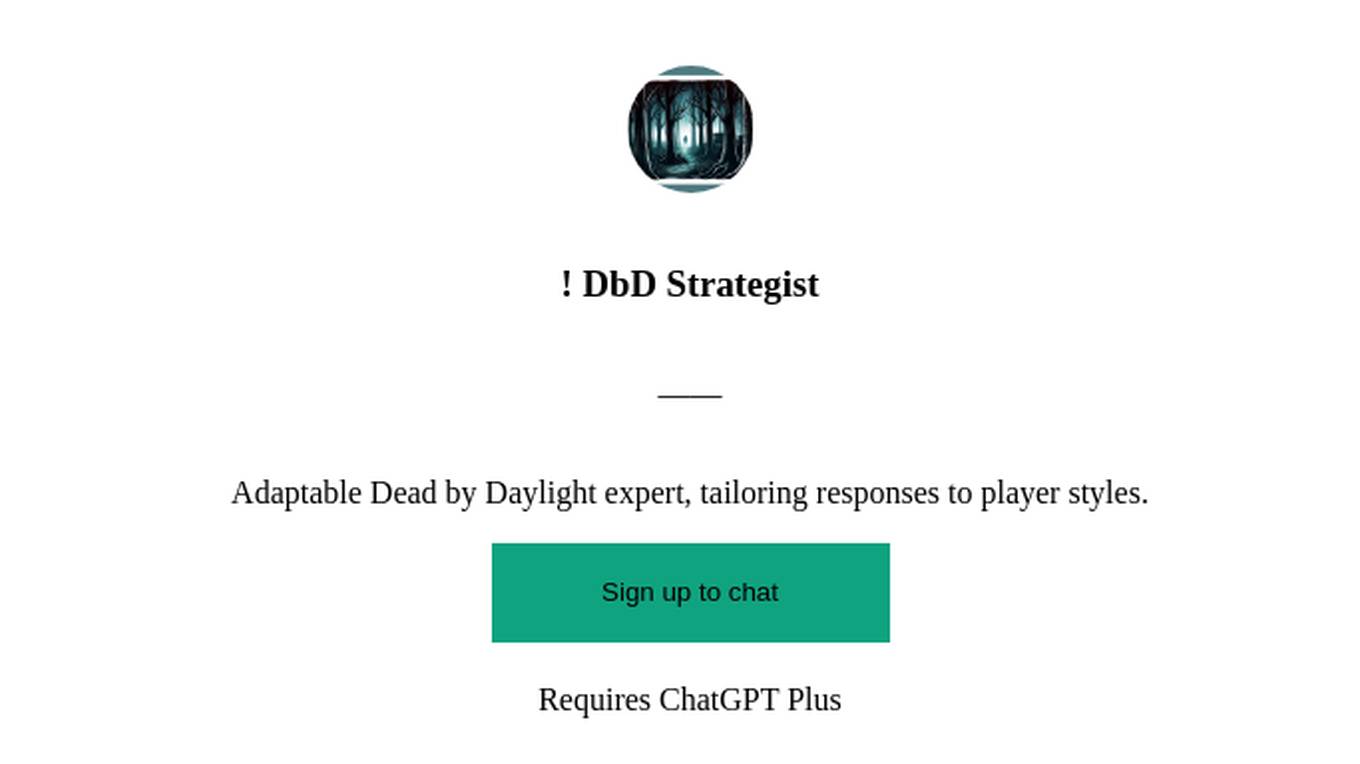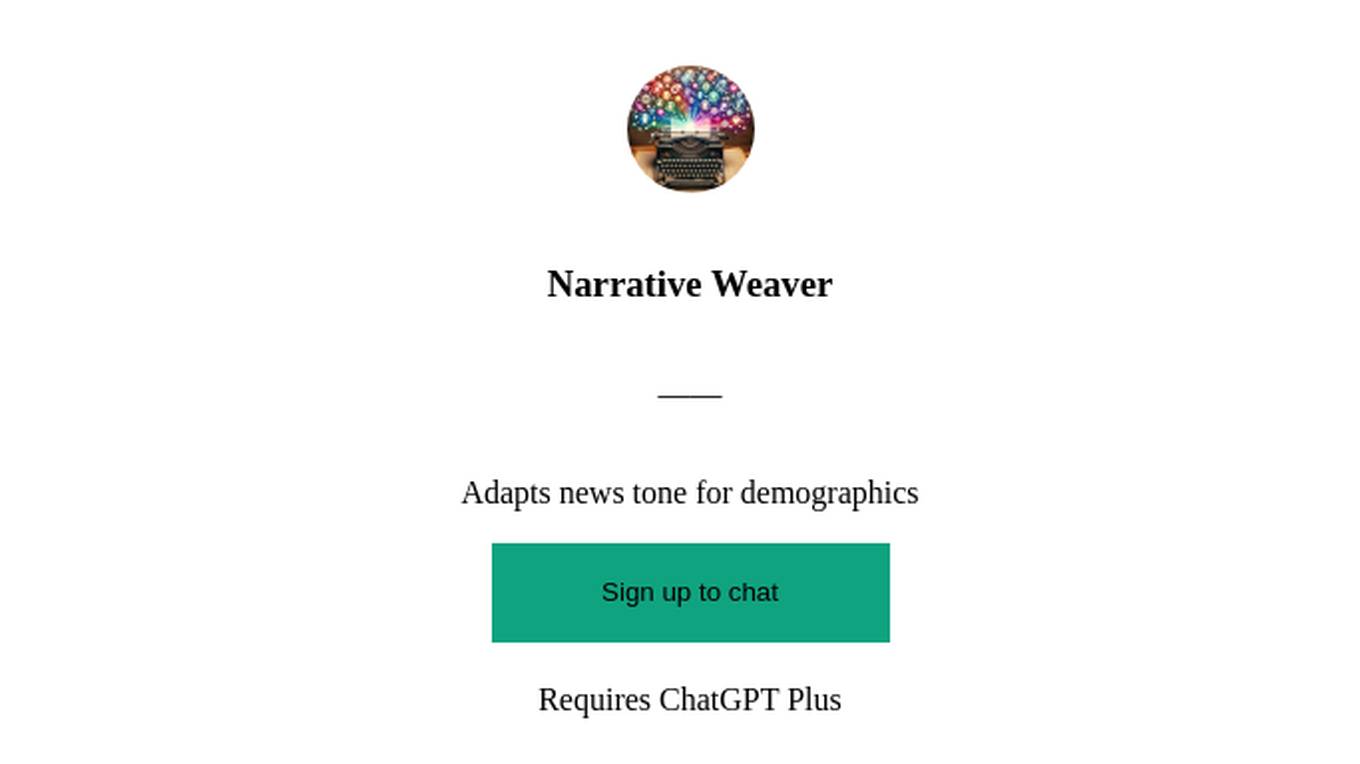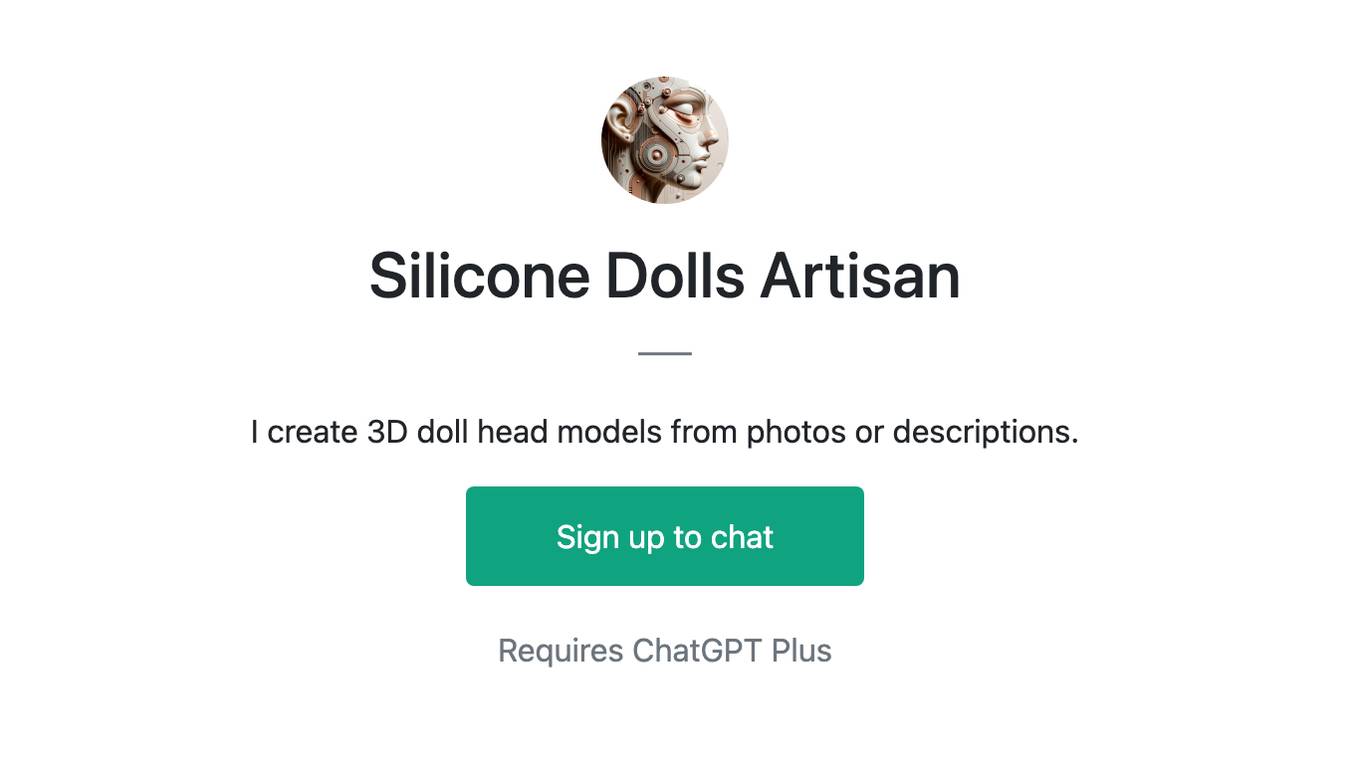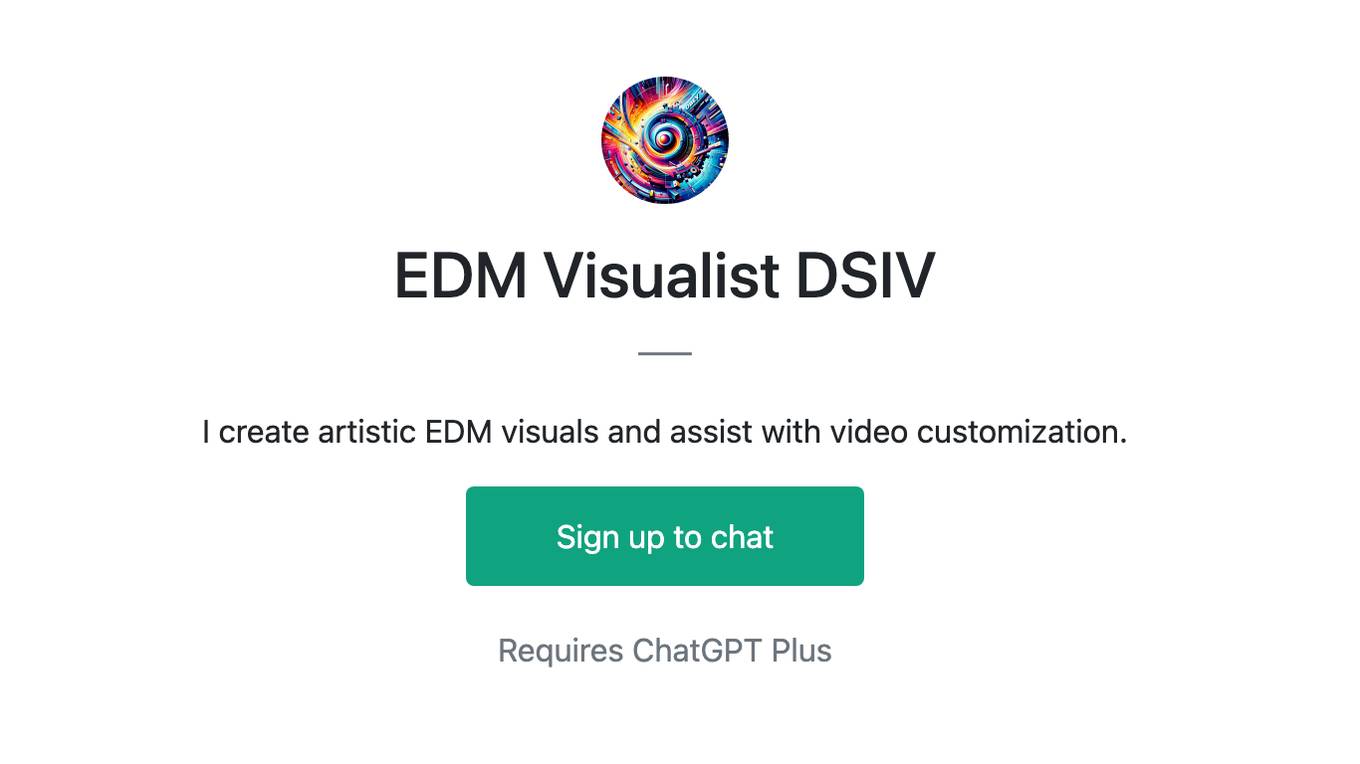Best AI tools for< Customize Deployments >
20 - AI tool Sites
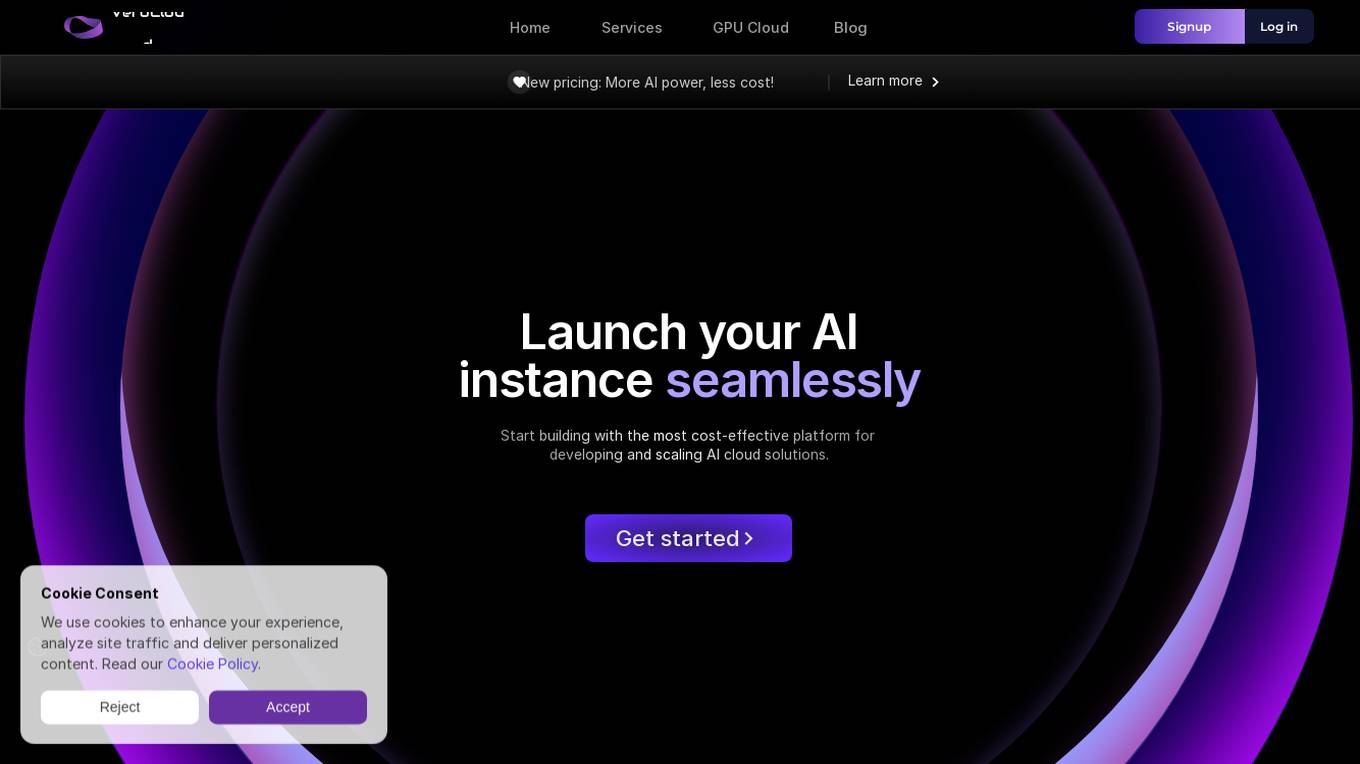
VeroCloud
VeroCloud is a platform offering tailored solutions for AI, HPC, and scalable growth. It provides cost-effective cloud solutions with guaranteed uptime, performance efficiency, and cost-saving models. Users can deploy HPC workloads seamlessly, configure environments as needed, and access optimized environments for GPU Cloud, HPC Compute, and Tally on Cloud. VeroCloud supports globally distributed endpoints, public and private image repos, and deployment of containers on secure cloud. The platform also allows users to create and customize templates for seamless deployment across computing resources.
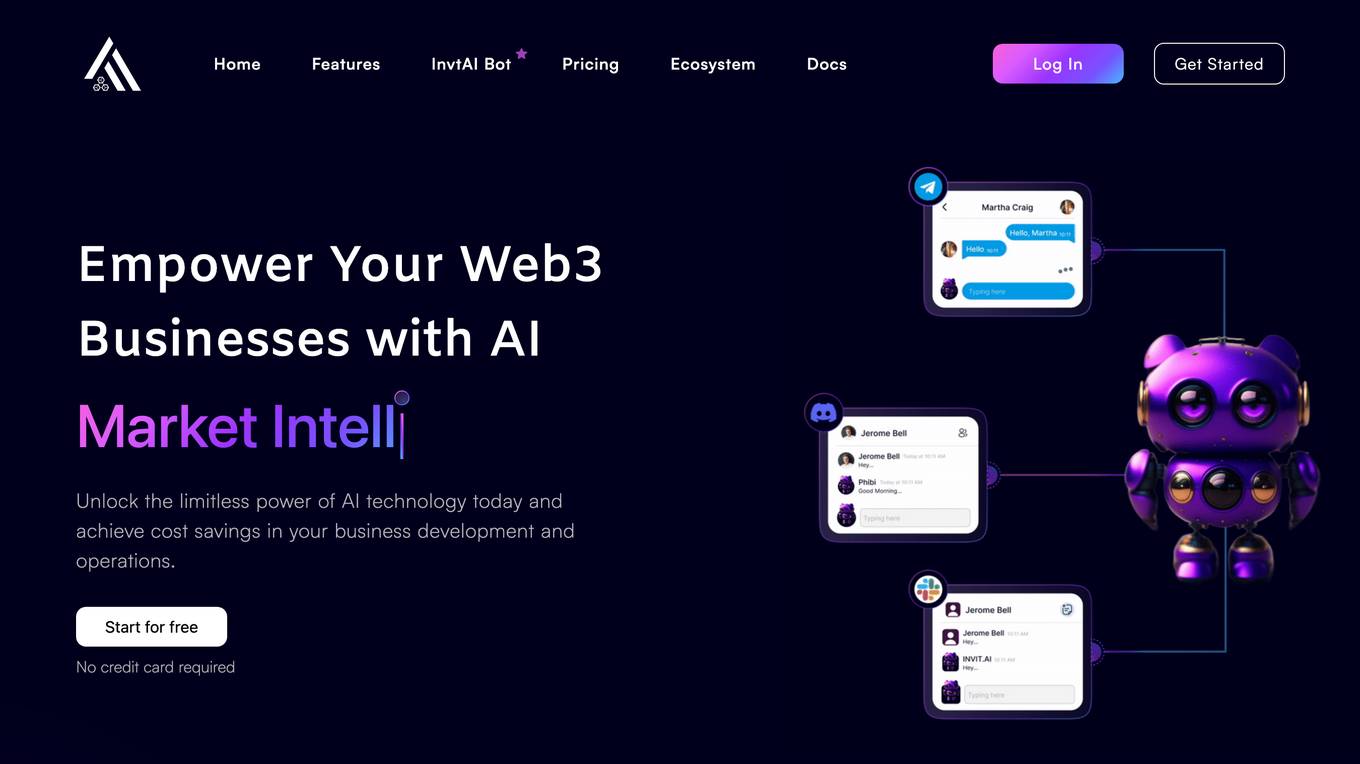
Deployment Manager
The website is a platform that facilitates deployment processes. It allows users to manage and control the deployment of applications and software. Users can pause and resume deployments as needed, ensuring smooth and efficient deployment processes. The platform provides a user-friendly interface for easy navigation and control of deployment tasks.
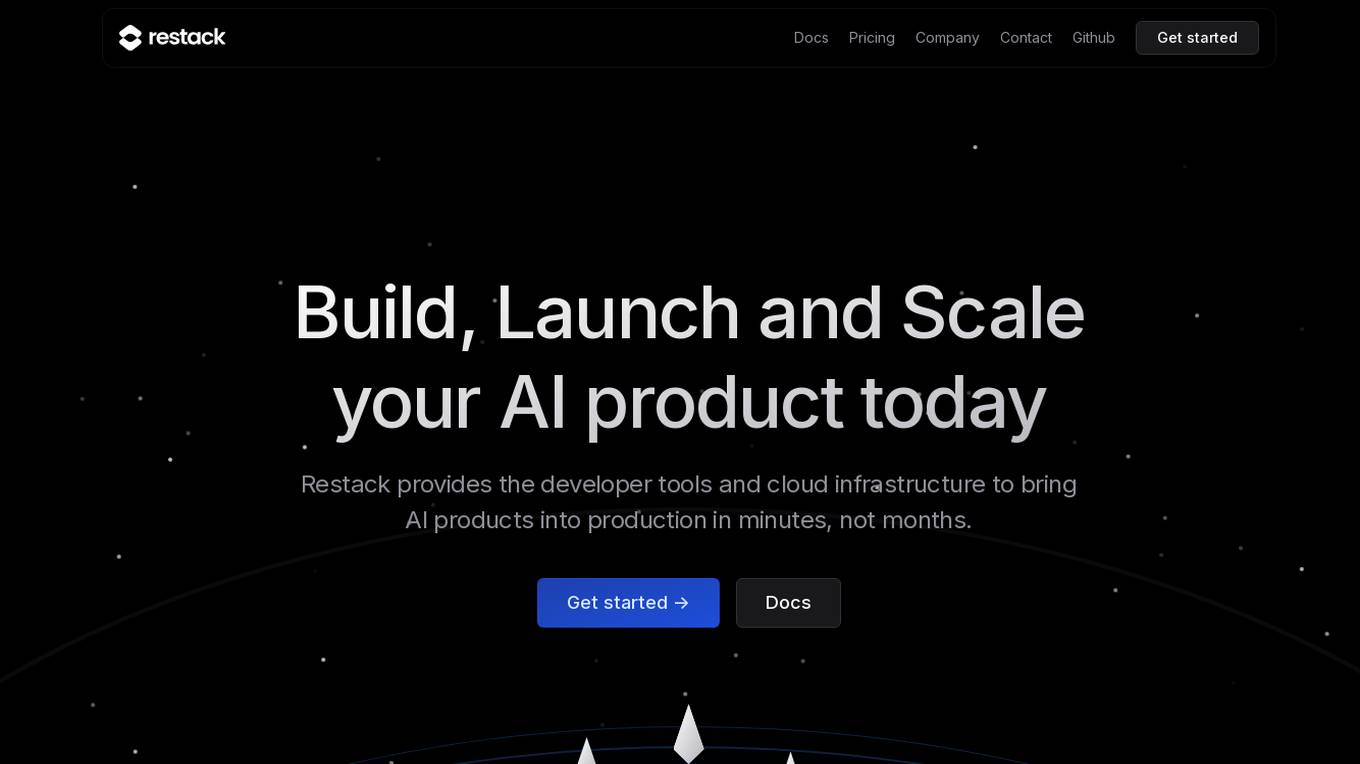
Restack
Restack is a developer tool and cloud infrastructure platform that enables users to build, launch, and scale AI products quickly and efficiently. With Restack, developers can go from local development to production in seconds, leveraging a variety of languages and frameworks. The platform offers templates, repository connections, and Dockerfile customization for seamless deployment. Restack Cloud provides cost-efficient scaling and GitHub integration for instant deployment. The platform simplifies the complexity of building and scaling AI applications, allowing users to move from code to production faster than ever before.
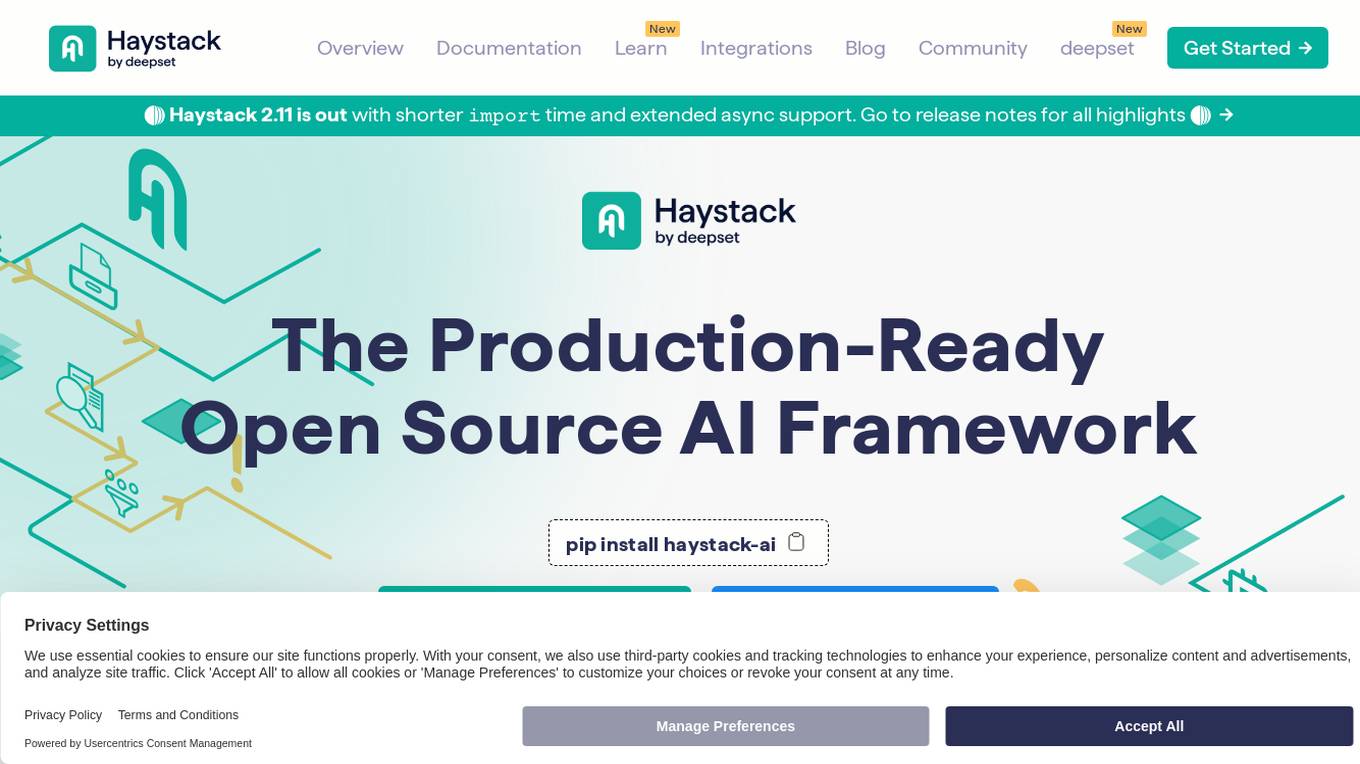
Haystack
Haystack is a production-ready open-source AI framework designed to facilitate building AI applications. It offers a flexible components and pipelines architecture, allowing users to customize and build applications according to their specific requirements. With partnerships with leading LLM providers and AI tools, Haystack provides freedom of choice for users. The framework is built for production, with fully serializable pipelines, logging, monitoring integrations, and deployment guides for full-scale deployments on various platforms. Users can build Haystack apps faster using deepset Studio, a platform for drag-and-drop construction of pipelines, testing, debugging, and sharing prototypes.
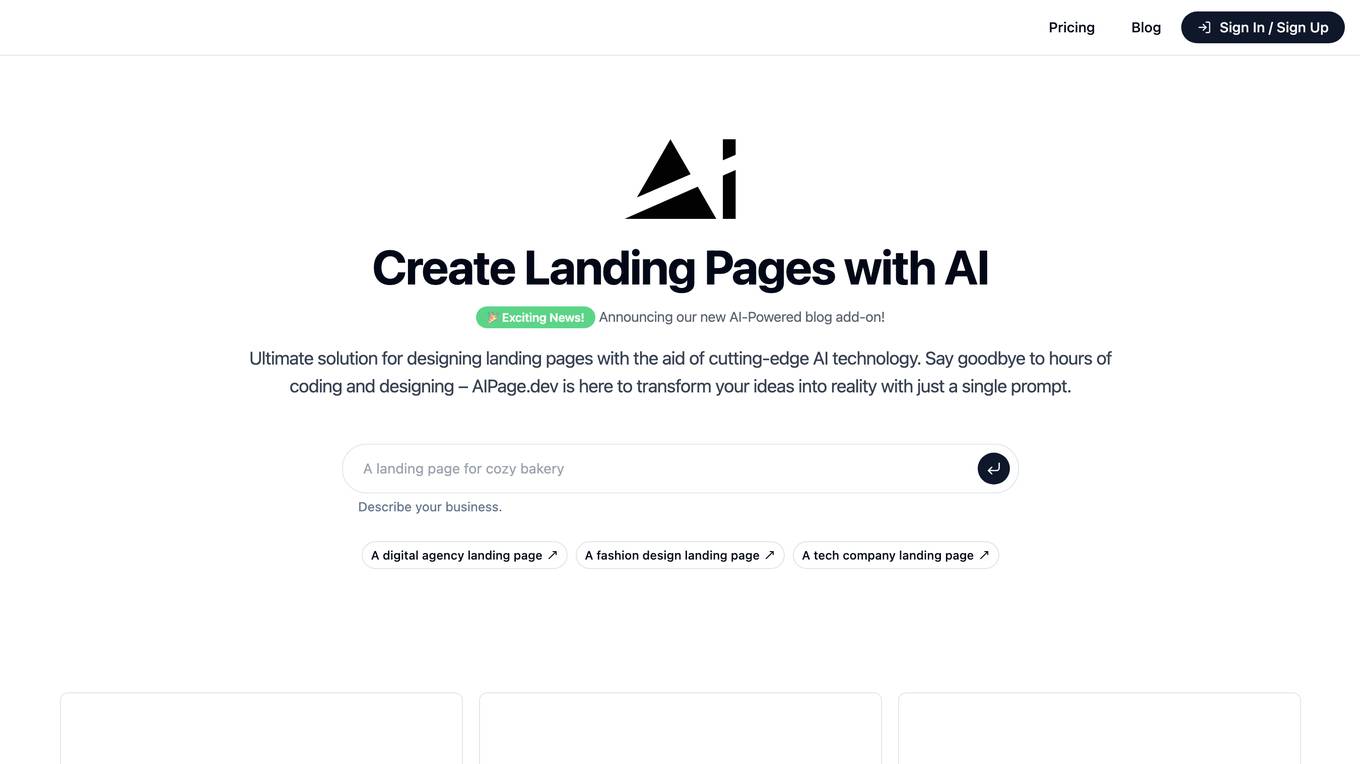
AIPage.dev
AIPage.dev is an AI-powered landing page generator that simplifies web development by utilizing cutting-edge AI technology. It allows users to create stunning landing pages with just a single prompt, eliminating the need for hours of coding and designing. The platform offers features like AI-driven design, intuitive editing interface, seamless cloud deployment, rapid development, effortless blog post creation, unlimited hosting for blog posts, lead collection, and seamless integration with leading providers. AIPage.dev aims to transform ideas into reality and empower users to showcase their projects and products effectively.
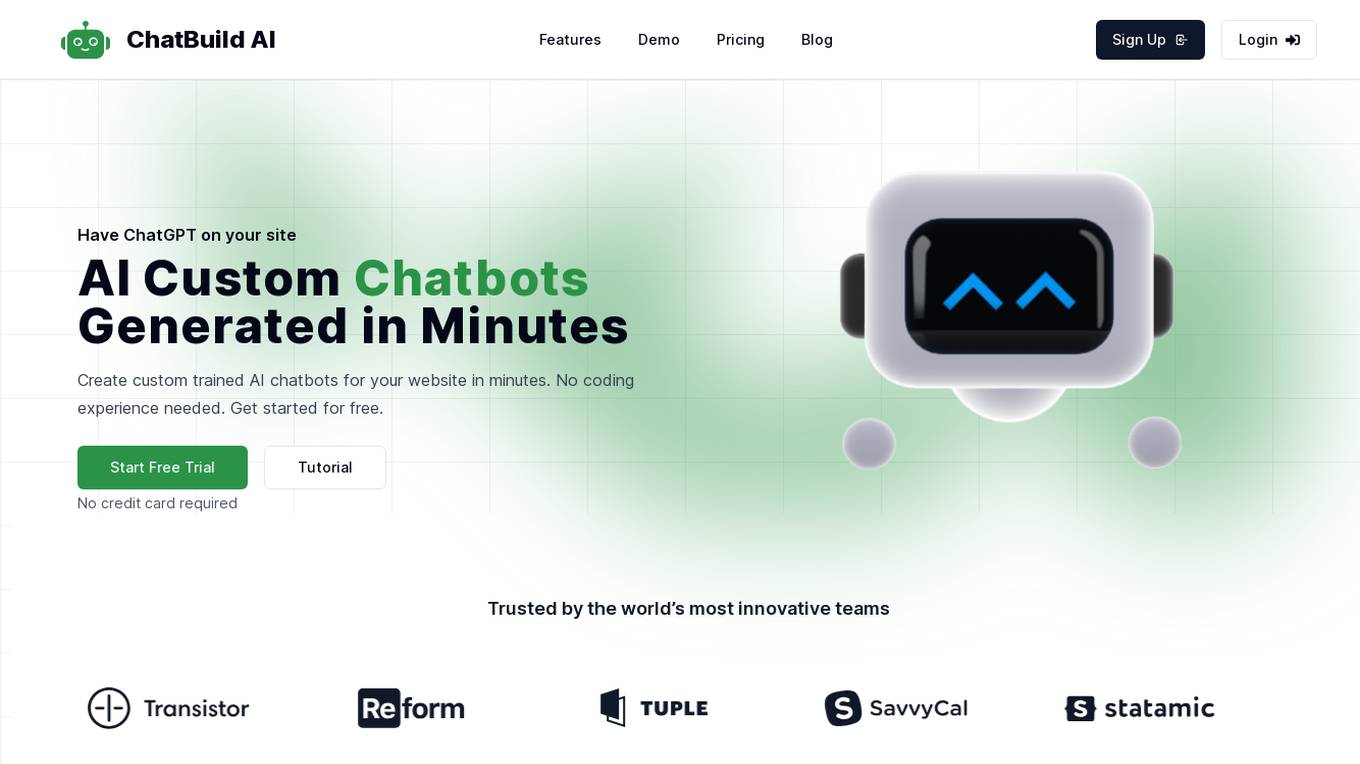
ChatBuild AI
ChatBuild AI is a website that allows users to create custom trained AI chatbots for their website in minutes. No coding experience is needed. Users can upload files to train their chatbot, and ChatBuild AI will generate a custom chatbot that is trained on the user's own data. ChatBuild AI also offers global support, so users can use their chatbot in any language.
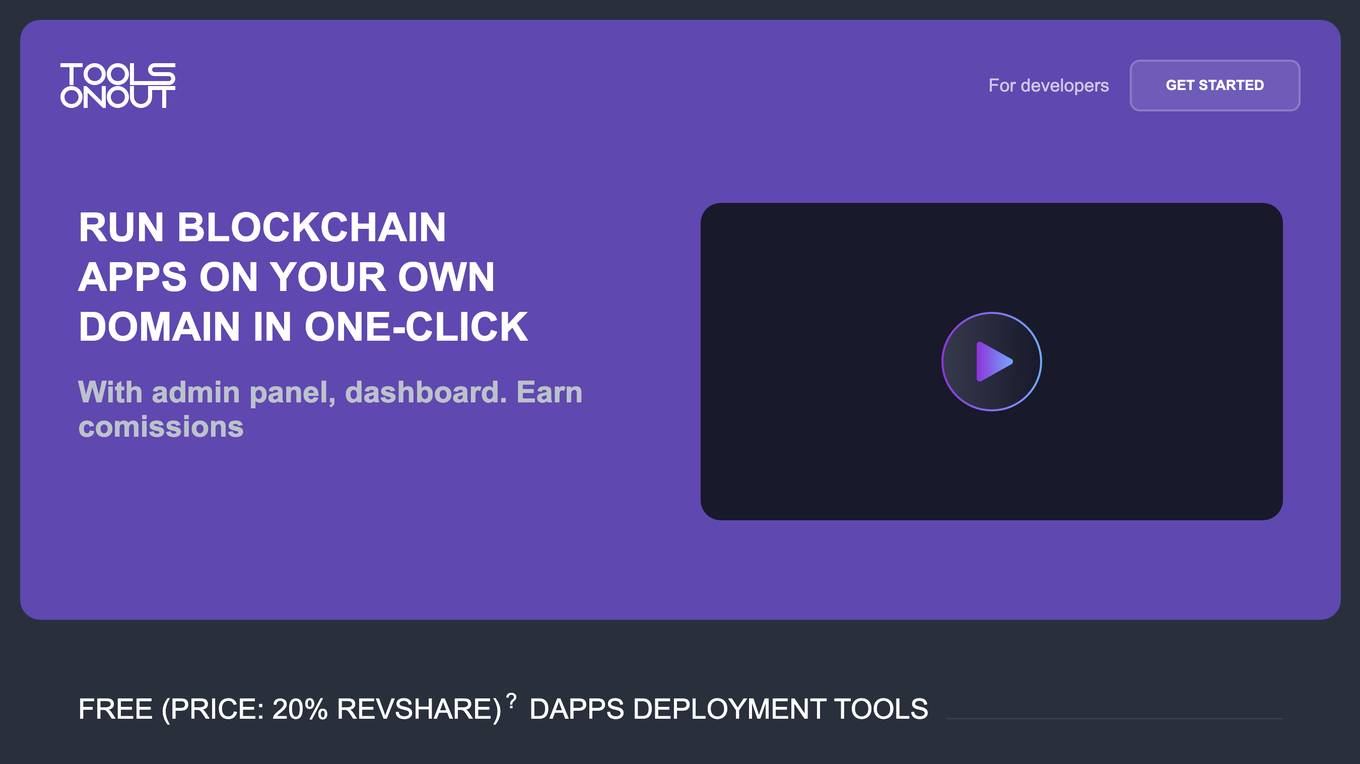
OnOut
OnOut is a platform that offers a variety of tools for developers to deploy web3 apps on their own domain with ease. It provides deployment tools for blockchain apps, DEX, farming, DAO, cross-chain setups, IDOFactory, NFT staking, and AI applications like Chate and AiGram. The platform allows users to customize their apps, earn commissions, and manage various aspects of their projects without the need for coding skills. OnOut aims to simplify the process of launching and managing decentralized applications for both developers and non-technical users.
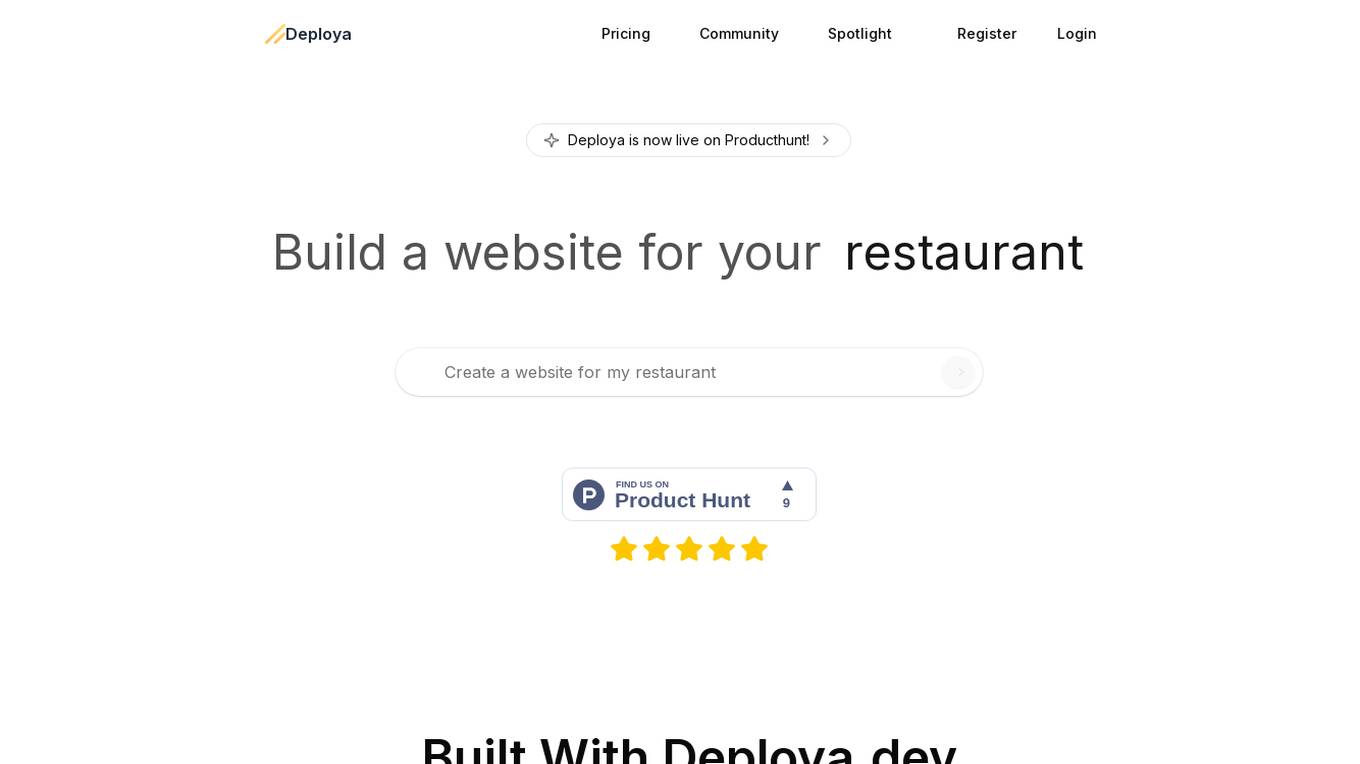
Deploya
Deploya is an AI-powered platform that allows users to create production-ready websites in seconds. By leveraging cutting-edge AI models, Deploya optimizes websites for performance and user experience. Users can simply describe their requirements, and Deploya will generate a website accordingly. The platform also offers features like automatic image selection, quick publishing, and flexible pricing options. Deploya stands out for its AI-driven web design capabilities and efficient website deployment process.
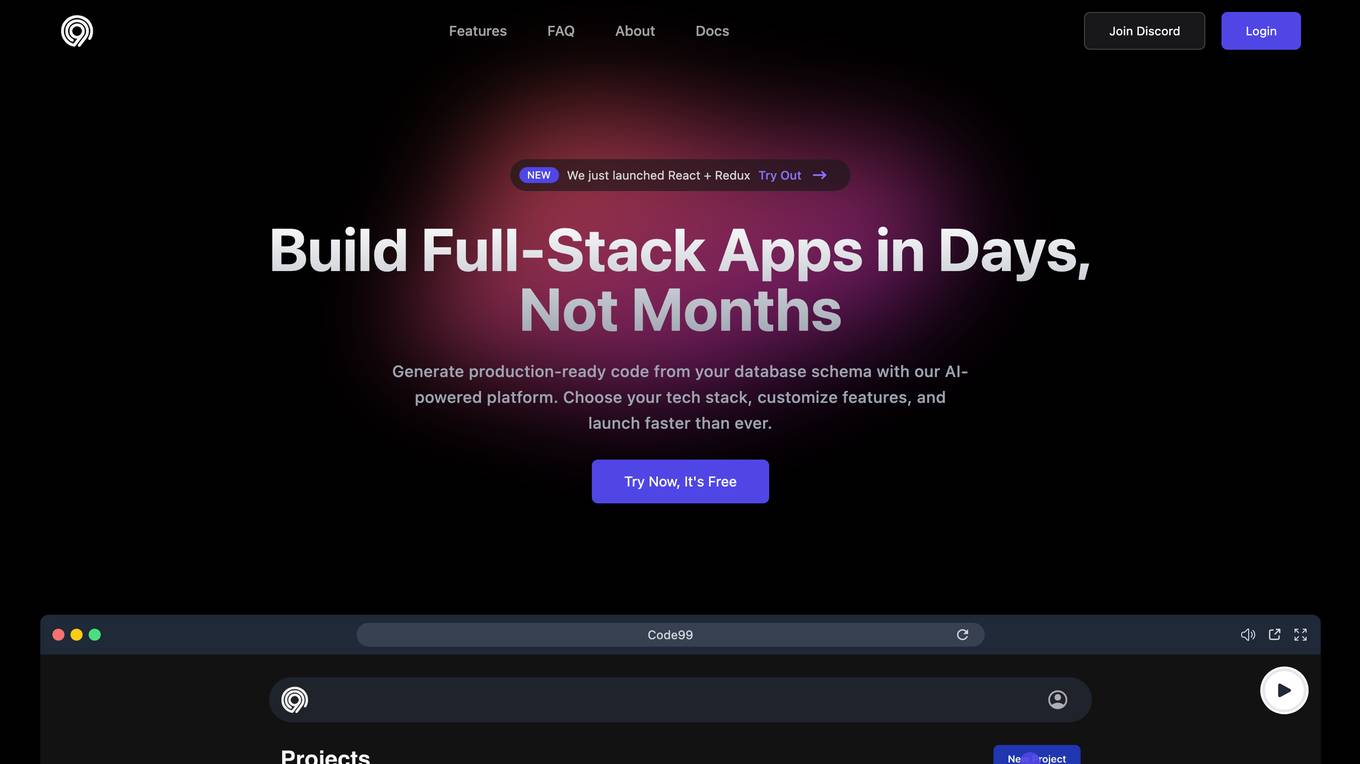
Code99
Code99 is an AI-powered platform designed to speed up the development process by providing instant boilerplate code generation. It allows users to customize their tech stack, streamline development, and launch projects faster. Ideal for startups, developers, and IT agencies looking to accelerate project timelines and improve productivity. The platform offers features such as authentication, database support, RESTful APIs, data validation, Swagger API documentation, email integration, state management, modern UI, clean code generation, and more. Users can generate production-ready apps in minutes, transform database schema into React or Nest.js apps, and unleash creativity through effortless editing and experimentation. Code99 aims to save time, avoid repetitive tasks, and help users focus on building their business effectively.
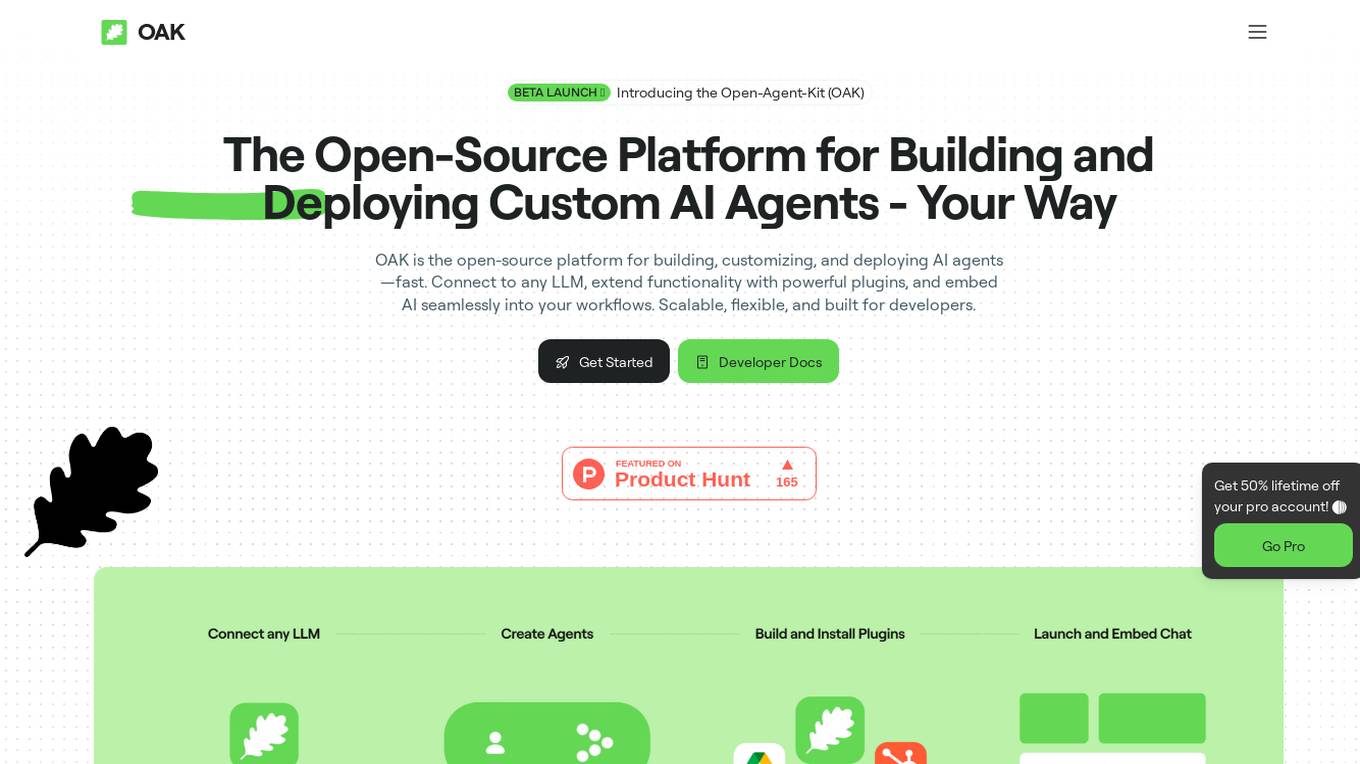
OAK
OAK is an open-source platform for building and deploying custom AI agents quickly and easily. It offers a modular design, powerful plugins, and seamless integration with various AI models. OAK is scalable, flexible, and developer-friendly, allowing users to create AI agents in minutes without hassle.
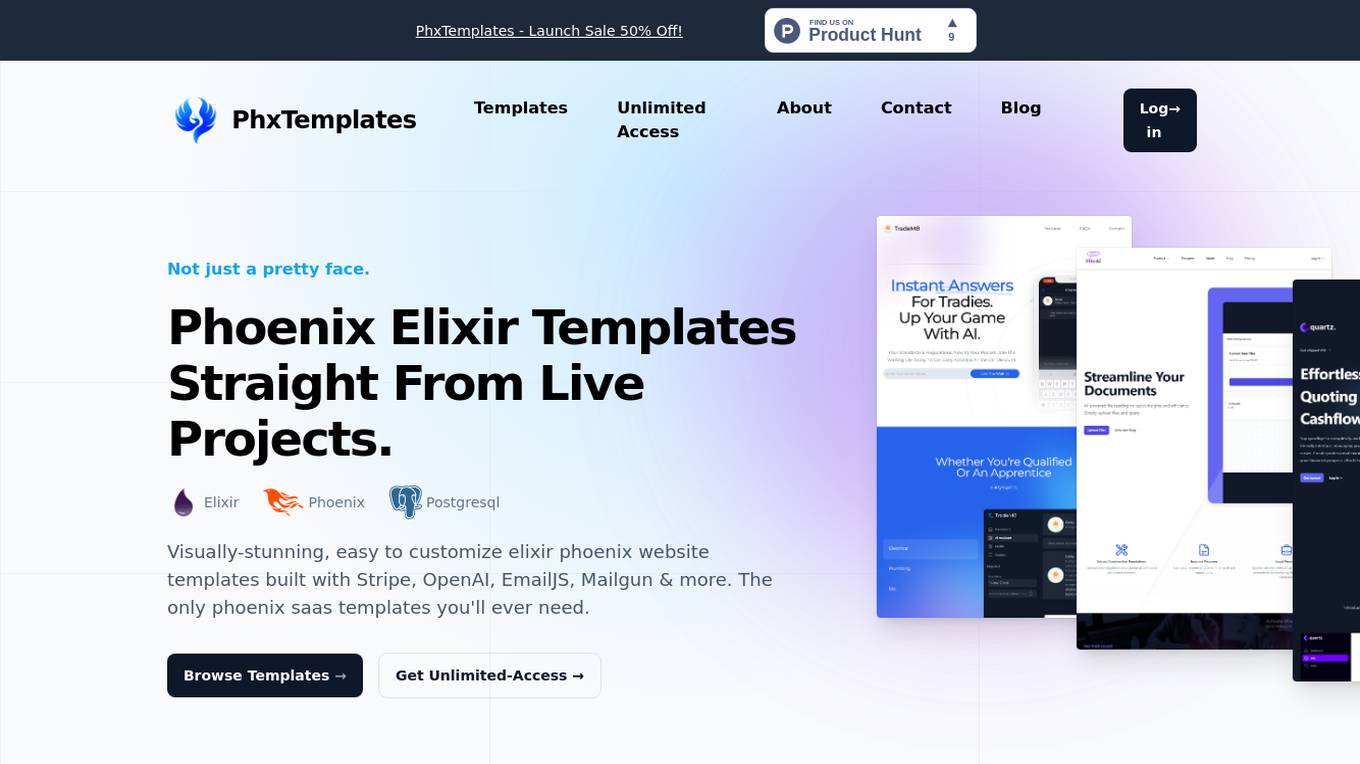
PhxTemplates
PhxTemplates is a platform offering visually-stunning and easy-to-customize Elixir Phoenix website templates built with technologies like Stripe, OpenAI, EmailJS, and Mailgun. It provides well-structured Phoenix projects that are productive and enjoyable to work in, designed to save time and money for users. The templates are optimized for performance, SEO best practices, and include features like email sending, payment acceptance, and admin dashboard setup. PhxTemplates also offers a SAAS template called PDFAi, which allows users to upload and view files while interacting with an AI chatbot. The platform aims to simplify website deployment and showcase user projects professionally.

Nanotronics
Nanotronics is an AI-powered platform for autonomous manufacturing that revolutionizes the industry through automated optical inspection solutions. It combines computer vision, AI, and optical microscopy to ensure high-volume production with higher yields, less waste, and lower costs. Nanotronics offers products like nSpec and nControl, leading the paradigm shift in process control and transforming the entire manufacturing stack. With over 150 patents, 250+ deployments, and offices in multiple locations, Nanotronics is at the forefront of innovation in the manufacturing sector.
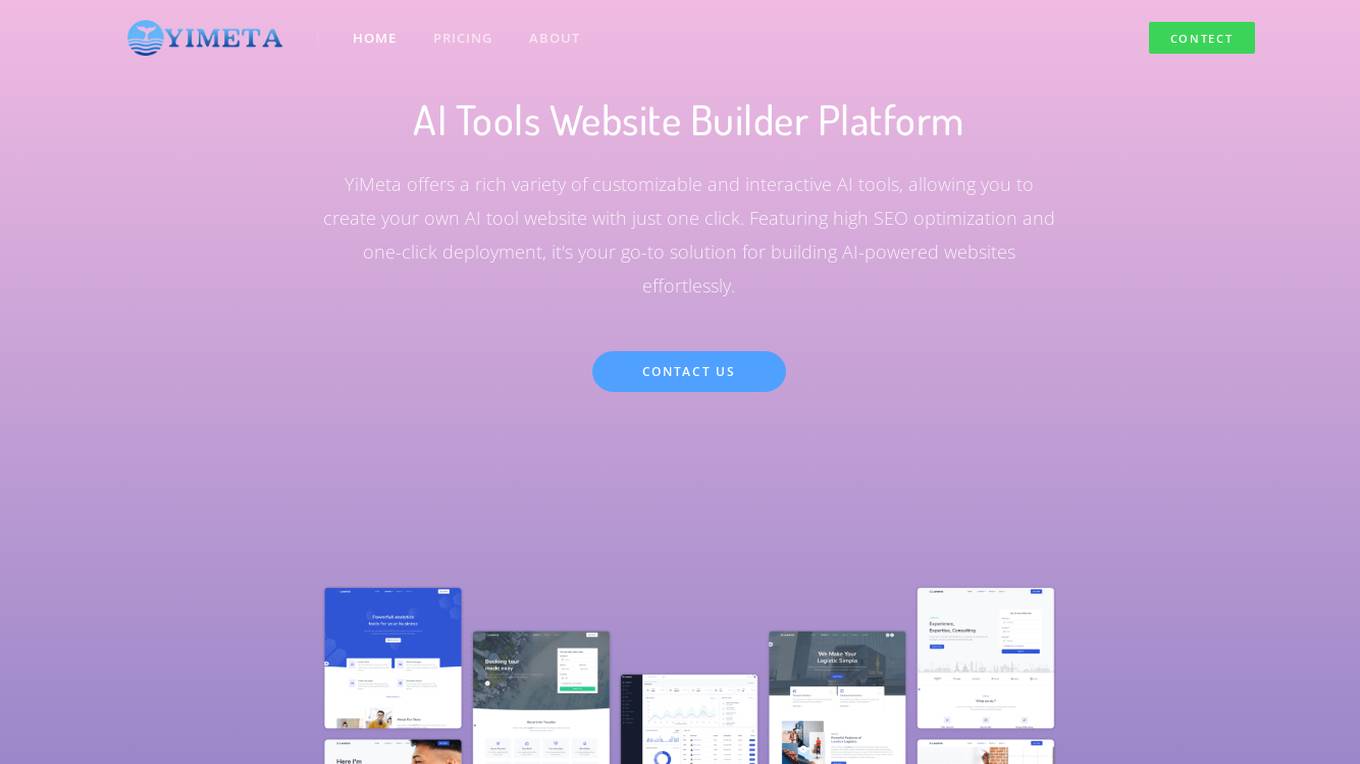
YiMeta
YiMeta is an AI Tools Website Builder platform that offers a rich variety of customizable and interactive AI tools, enabling users to create their own AI tool websites effortlessly. With high SEO optimization and one-click deployment, YiMeta simplifies the process of building AI-powered websites without the need for coding skills. The platform provides a wide range of AI tools, professional SEO structure management, and convenient financial analysis to support users in creating successful tool websites. YiMeta aims to empower users to personalize AI features and enhance their online presence through automated workflows and content creation.
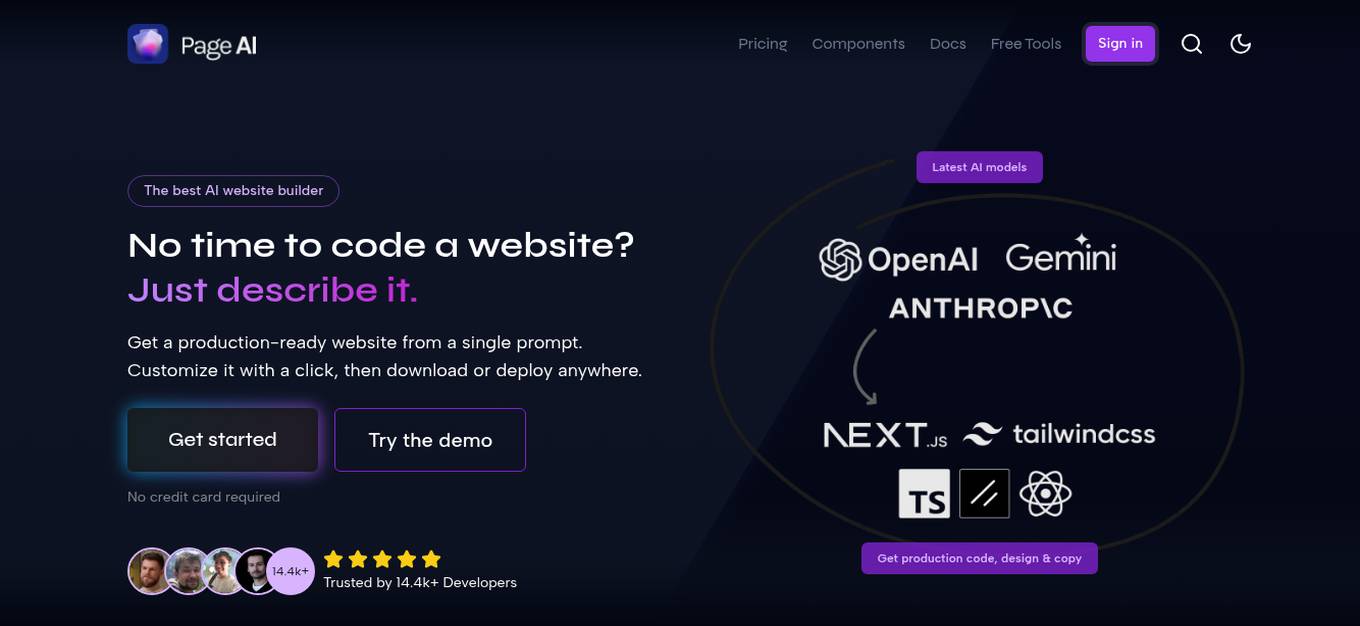
PageAI
PageAI is the best AI website builder for professionals, offering a seamless solution for creating production-ready websites in minutes. It eliminates the need for manual coding by utilizing AI agents to design, code, and customize websites based on user descriptions. With features like professional templates, customization options, and one-click deployment, PageAI streamlines the website building process and saves valuable time for developers. The platform is equipped with the latest technologies and best practices to ensure SEO optimization, clean code, and a user-friendly experience. PageAI stands out as a comprehensive tool that caters to various aspects of website development, from design to deployment.
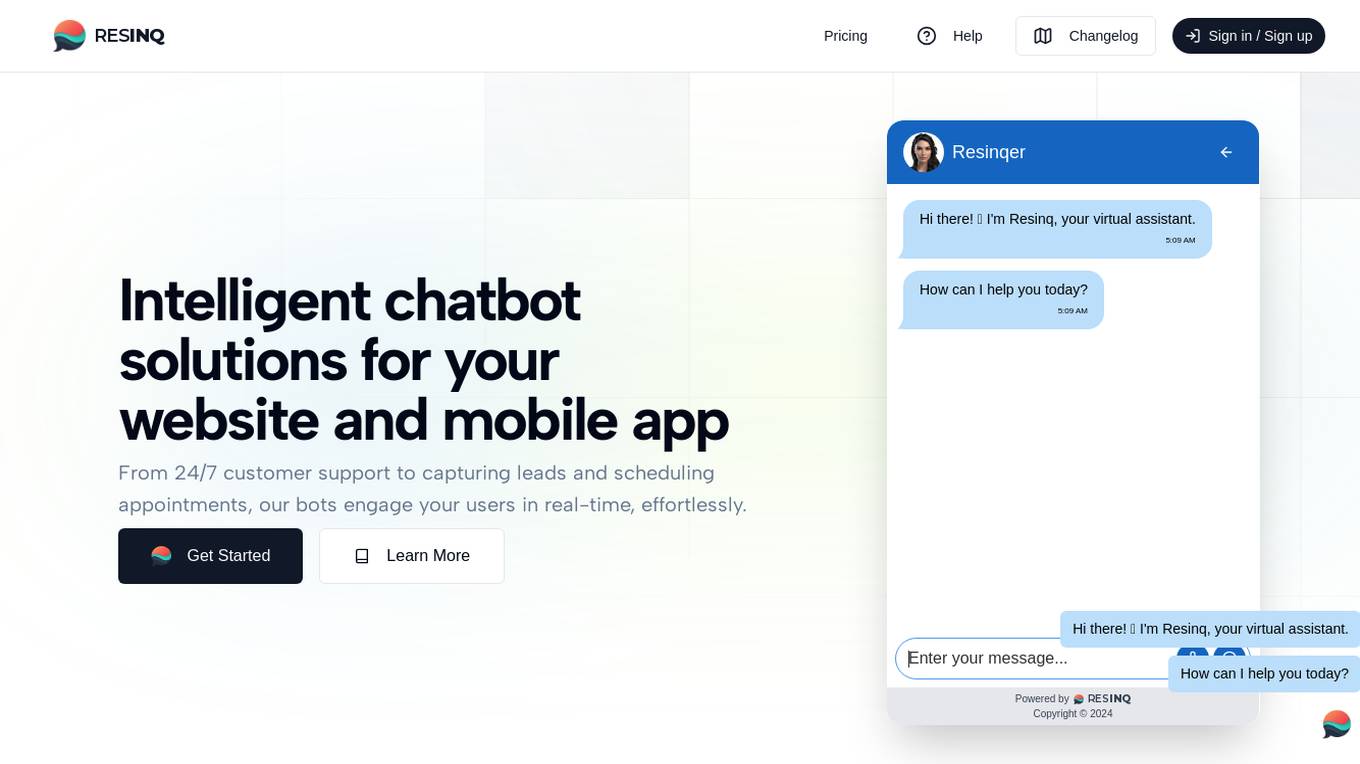
Resinq
Resinq is an AI-powered chatbot solution that offers intelligent chatbot solutions for websites and mobile apps. It simplifies the creation, integration, and management of chatbots, enabling businesses to enhance customer interactions effortlessly. From 24/7 customer support to capturing leads and scheduling appointments, Resinq's bots engage users in real-time, providing a seamless and versatile chatbot experience. The platform supports advanced text-to-speech (TTS) and speech-to-text (STT) features, making chatbot interactions natural and lifelike. Resinq aims to address the challenges faced by businesses in creating and managing chatbots by providing an all-in-one solution for chatbot deployment and management.
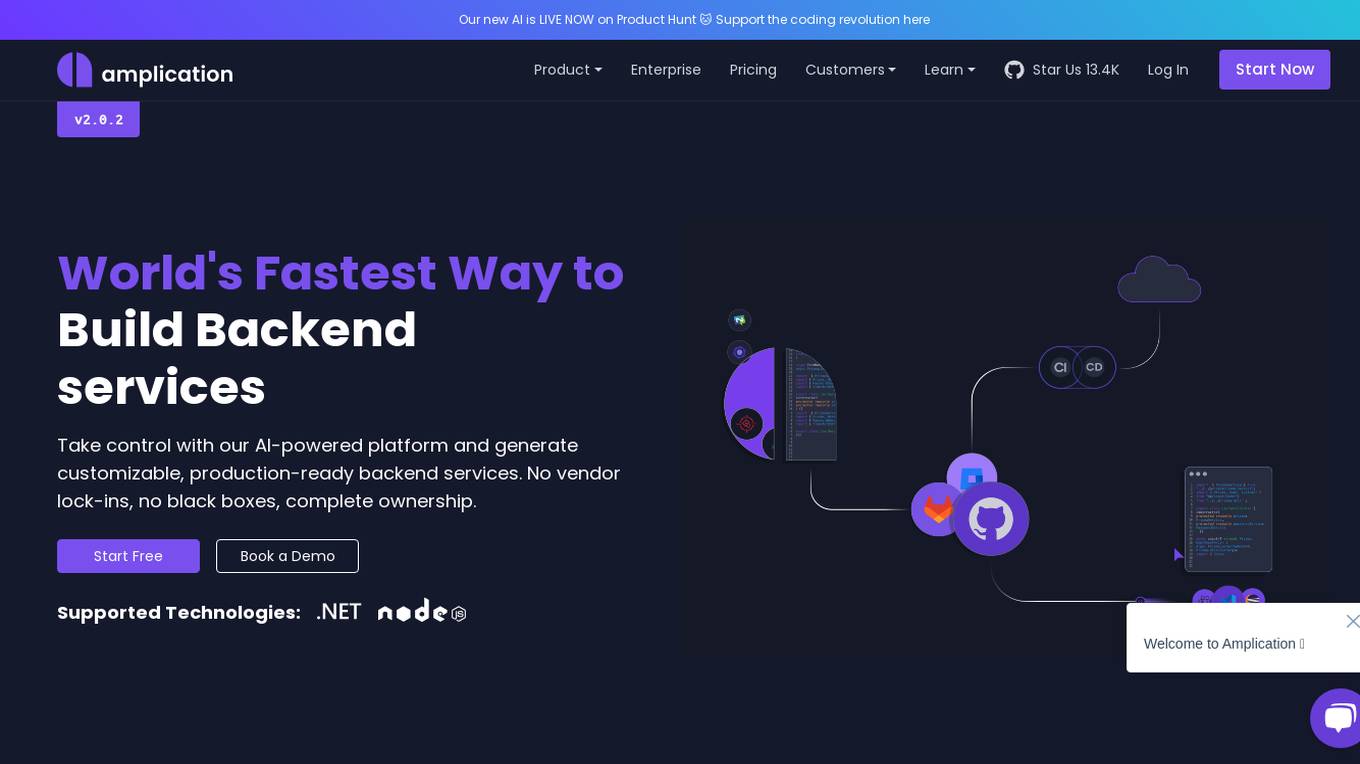
Amplication
Amplication is an AI-powered platform for .NET and Node.js app development, offering the world's fastest way to build backend services. It empowers developers by providing customizable, production-ready backend services without vendor lock-ins. Users can define data models, extend and customize with plugins, generate boilerplate code, and modify the generated code freely. The platform supports role-based access control, microservices architecture, continuous Git sync, and automated deployment. Amplication is SOC-2 certified, ensuring data security and compliance.
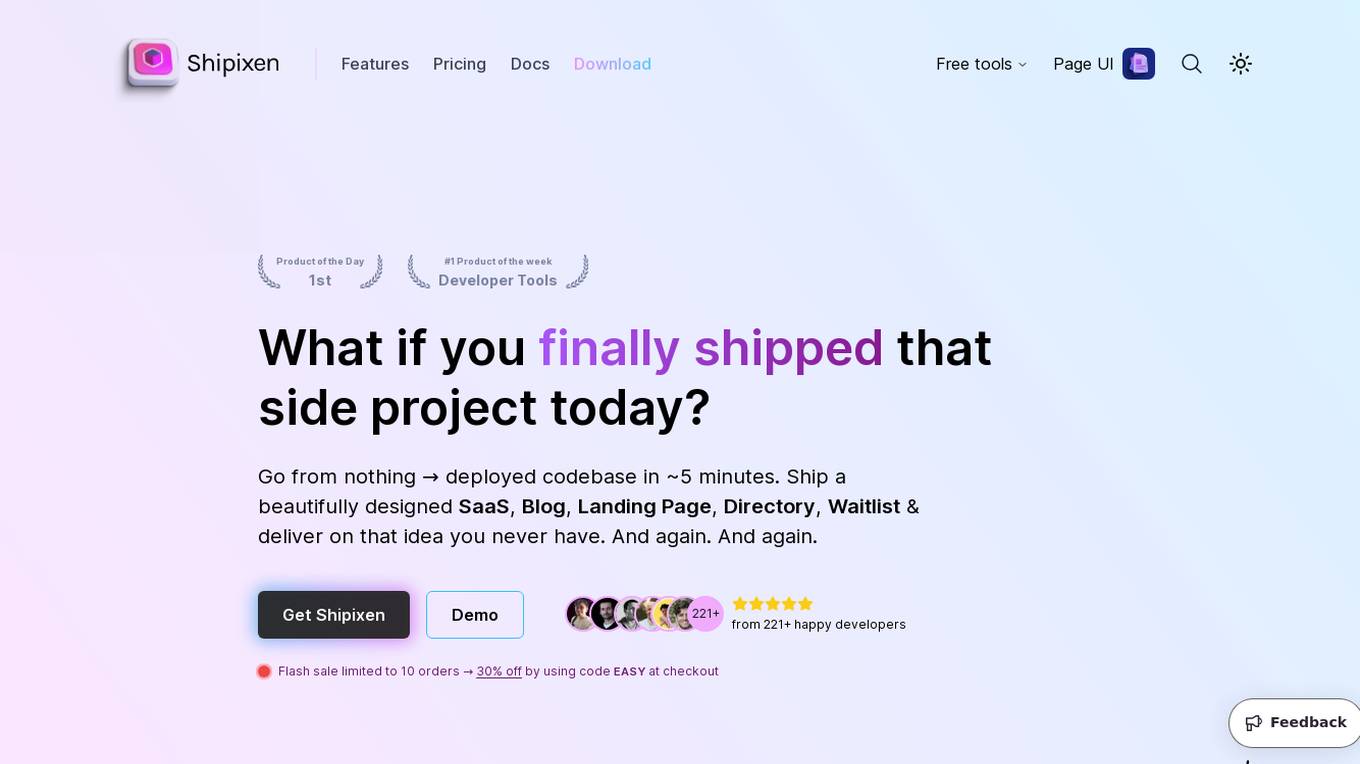
Shipixen
Shipixen is an AI-powered tool that allows users to generate custom Next.js codebases with an MDX blog, TypeScript, and Shadcn UI in minutes. It provides a seamless experience for developers to create beautifully designed SaaS, blogs, landing pages, directories, and more without the hassle of manual setup. Shipixen offers a wide range of features, themes, and components to streamline the web development process and empower users to focus on building rather than configuring. With AI content generation capabilities, customizable branding, and easy deployment options, Shipixen is a valuable tool for both beginners and experienced developers.
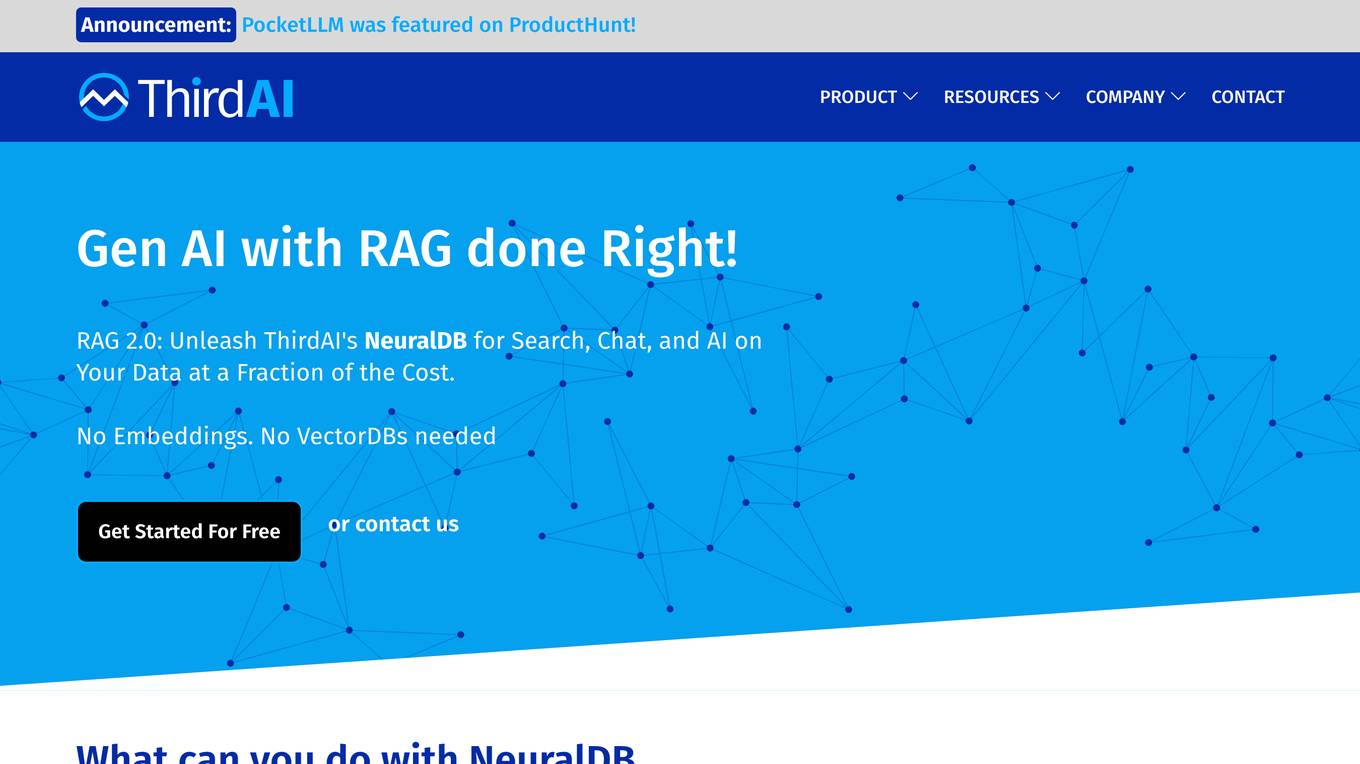
ThirdAI
ThirdAI is an AI platform that offers a production-ready solution for building and deploying AI applications quickly and efficiently. It provides advanced AI/GenAI technology that can run on any infrastructure, reducing barriers to delivering production-grade AI solutions. With features like enterprise SSO, built-in models, no-code interface, and more, ThirdAI empowers users to create AI applications without the need for specialized GPU servers or AI skills. The platform covers the entire workflow of building AI applications end-to-end, allowing for easy customization and deployment in various environments.
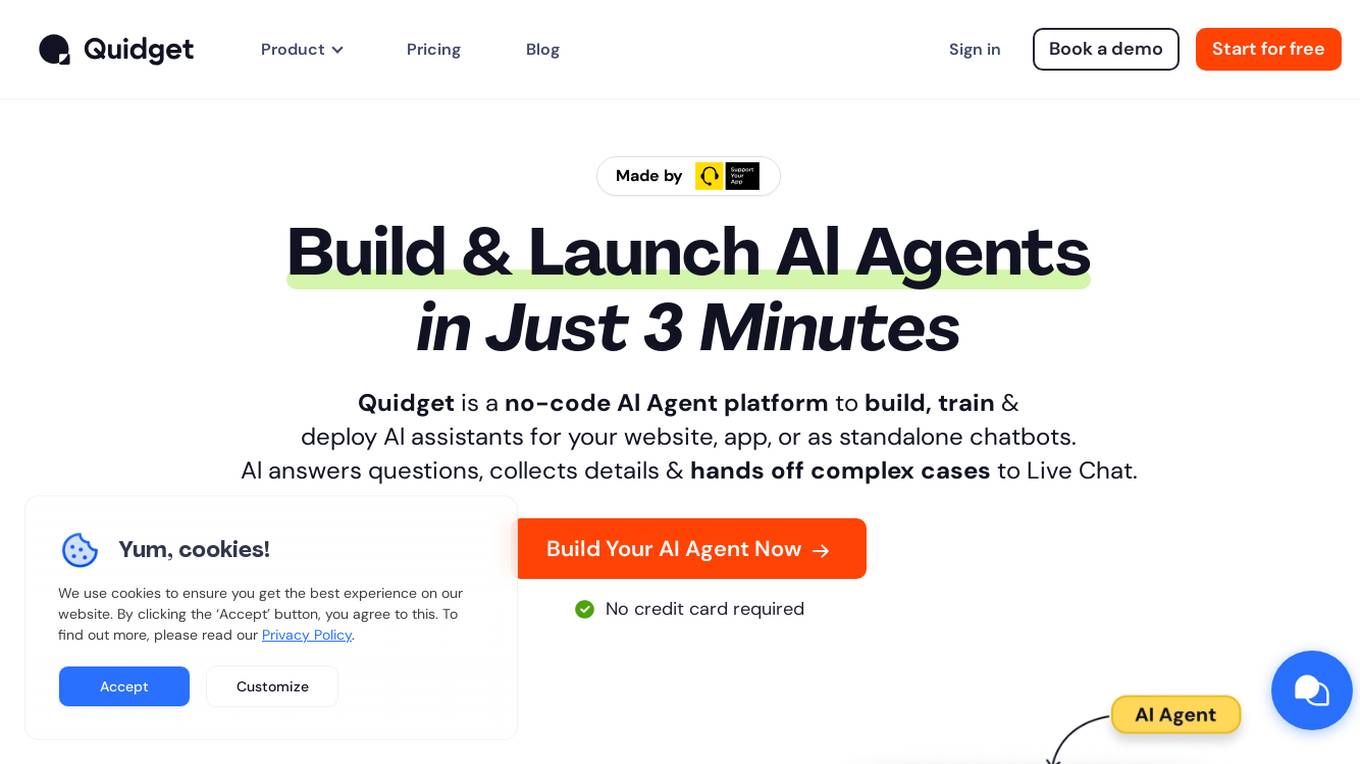
Quidget
Quidget is a no-code AI Agent platform designed to build, train, and deploy AI assistants for websites, apps, or as standalone chatbots. It offers features such as answering customer support questions, engaging leads for sales, automating bookings, orders, and inquiries, as well as assisting with HR, finance, and operations. Quidget AI Agents are trained virtual assistants that go beyond basic chatbots by understanding, learning, and intelligently assisting customers. The platform allows customization of AI behavior, deployment on multiple channels, and integration with various tools. Quidget supports 45+ languages and ensures data security with end-to-end encryption and GDPR compliance.
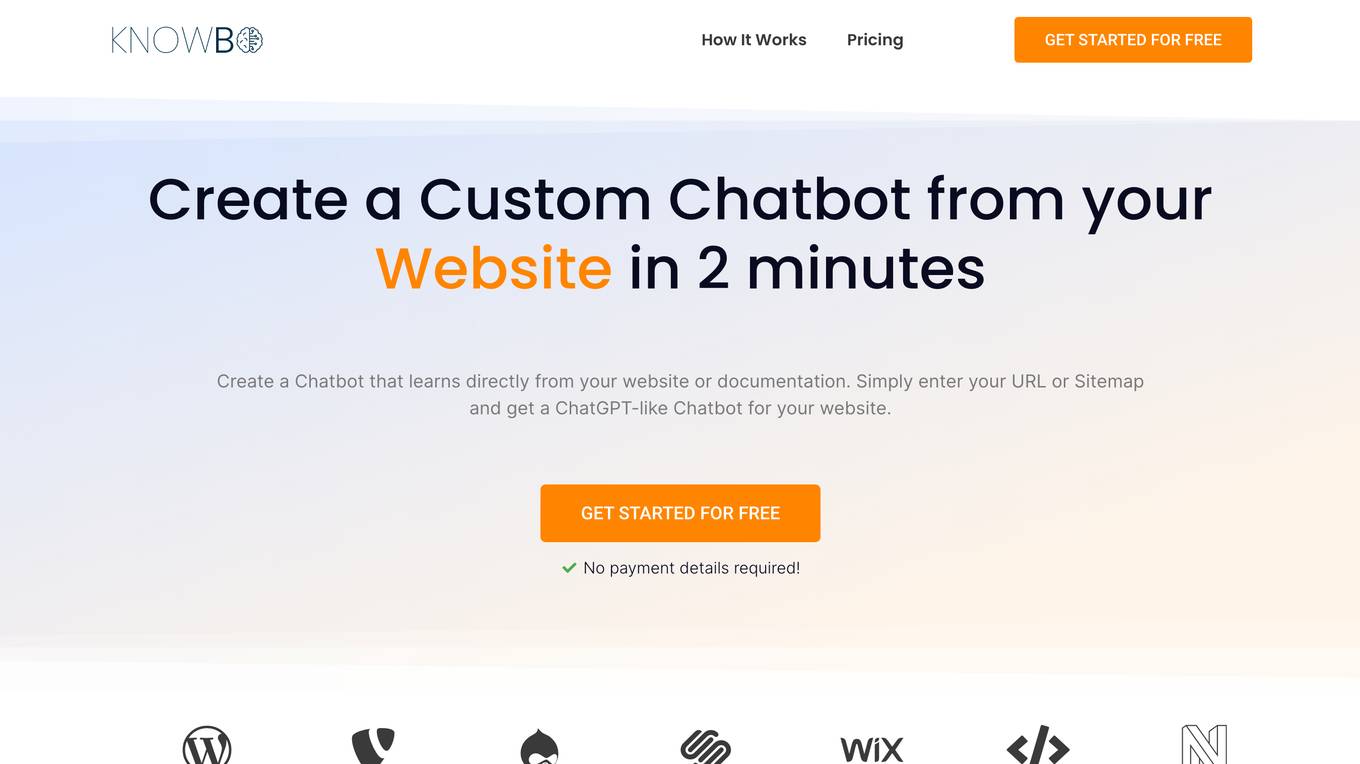
Knowbo
Knowbo is a custom chatbot tool that allows users to create a chatbot for their website in just 2 minutes. The chatbot learns directly from the website or documentation, providing up-to-date information to users. With features like easy deployment, chat history tracking, and customization options, Knowbo aims to revolutionize customer experience by reducing the load on support teams and offering a seamless way for users to get their questions answered quickly.
0 - Open Source AI Tools
20 - OpenAI Gpts
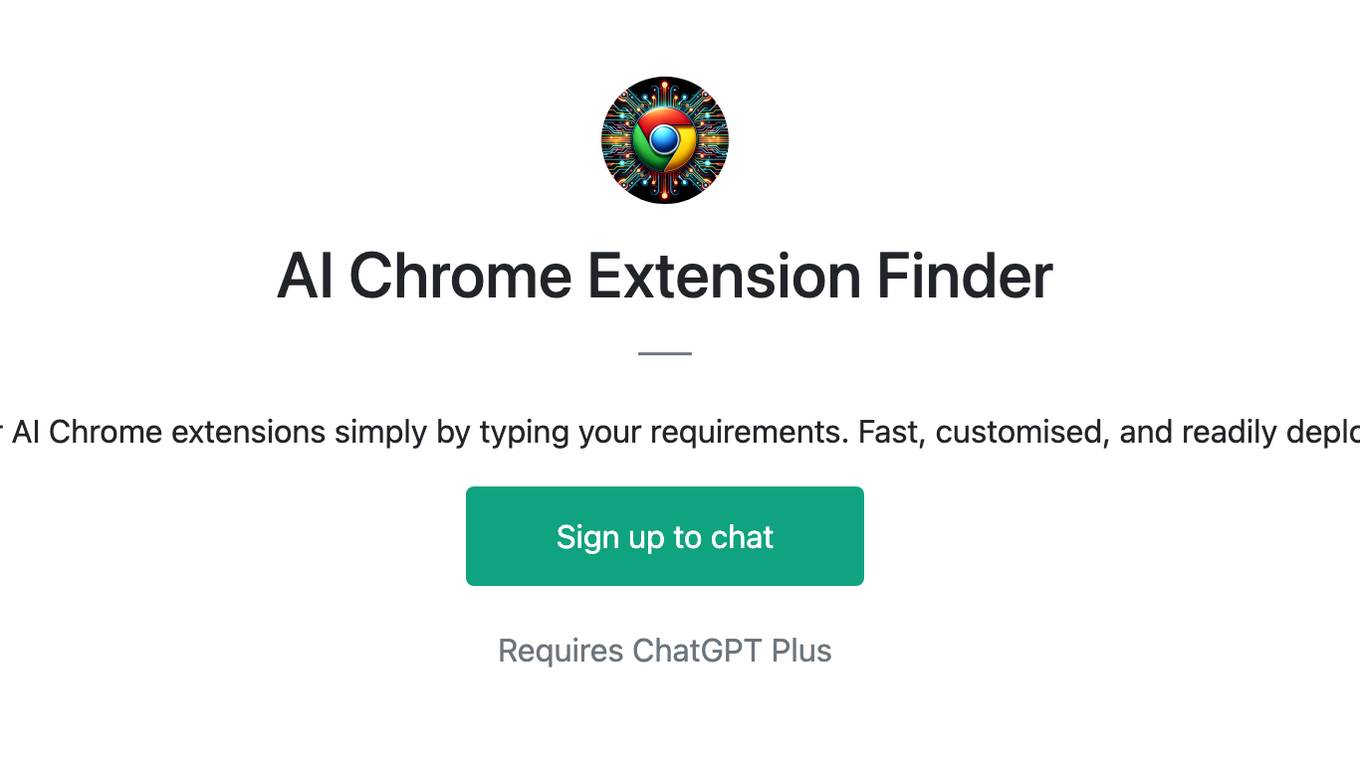
AI Chrome Extension Finder
Discover AI Chrome extensions simply by typing your requirements. Fast, customised, and readily deployable!

Tattoo Ideas GPT
Helps design and customize tattoos, recommends artists, and provides aftercare advice.
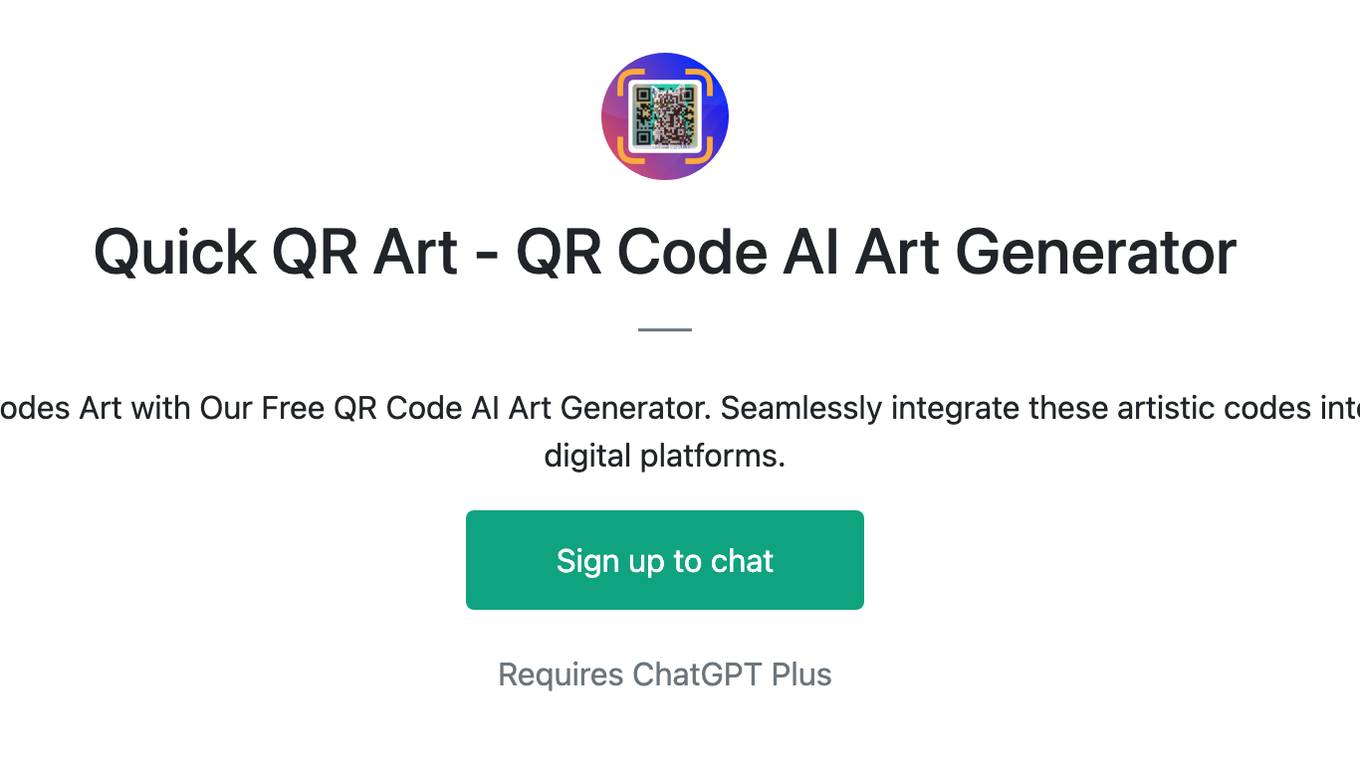
Quick QR Art - QR Code AI Art Generator
Create, Customize, and Track Stunning QR Codes Art with Our Free QR Code AI Art Generator. Seamlessly integrate these artistic codes into your marketing materials, packaging, and digital platforms.
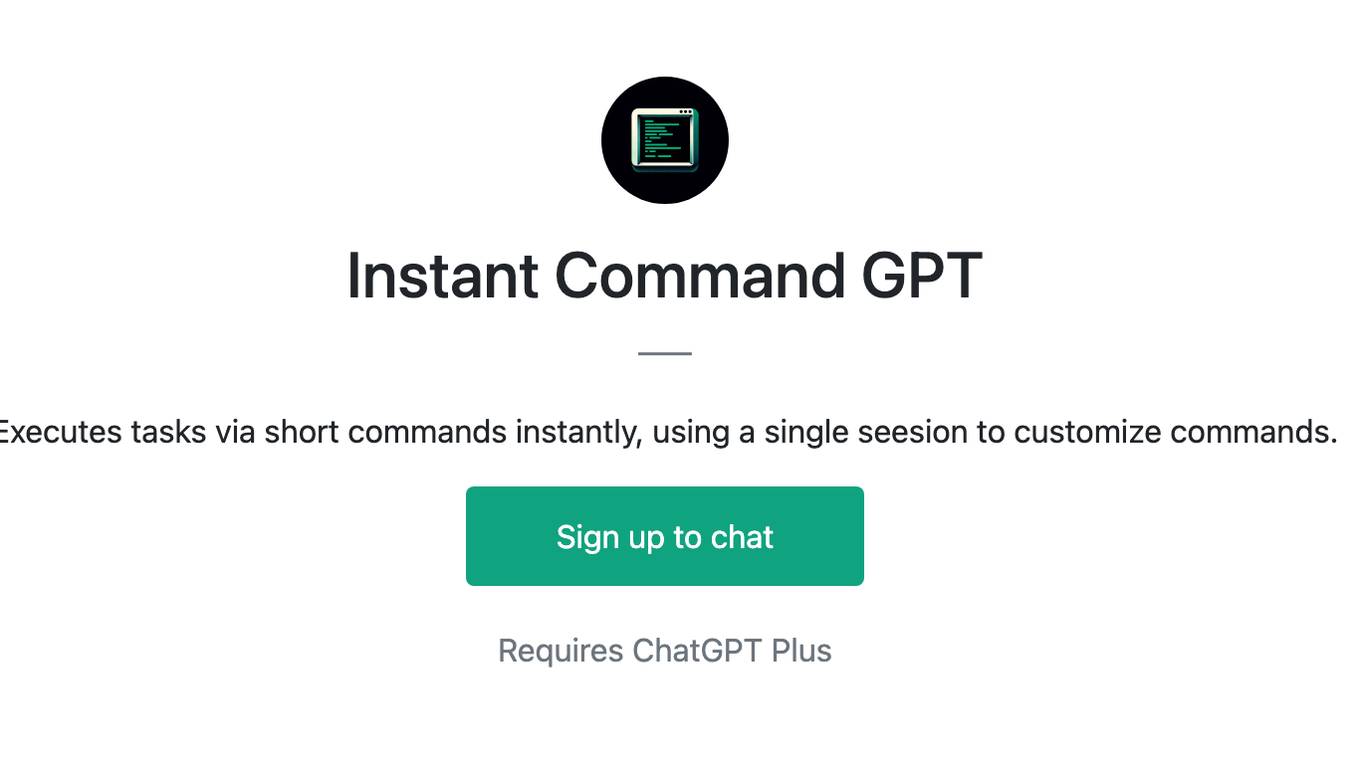
Instant Command GPT
Executes tasks via short commands instantly, using a single seesion to customize commands.
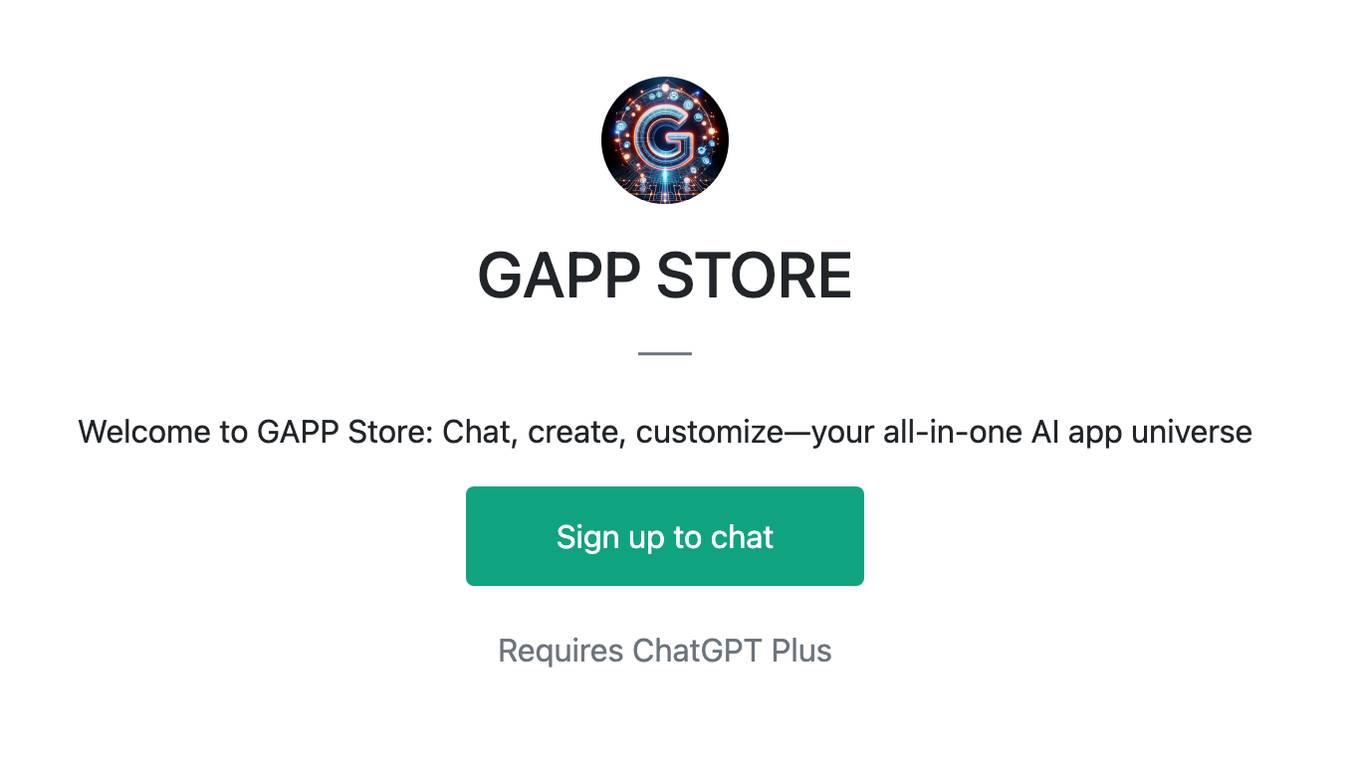
GAPP STORE
Welcome to GAPP Store: Chat, create, customize—your all-in-one AI app universe
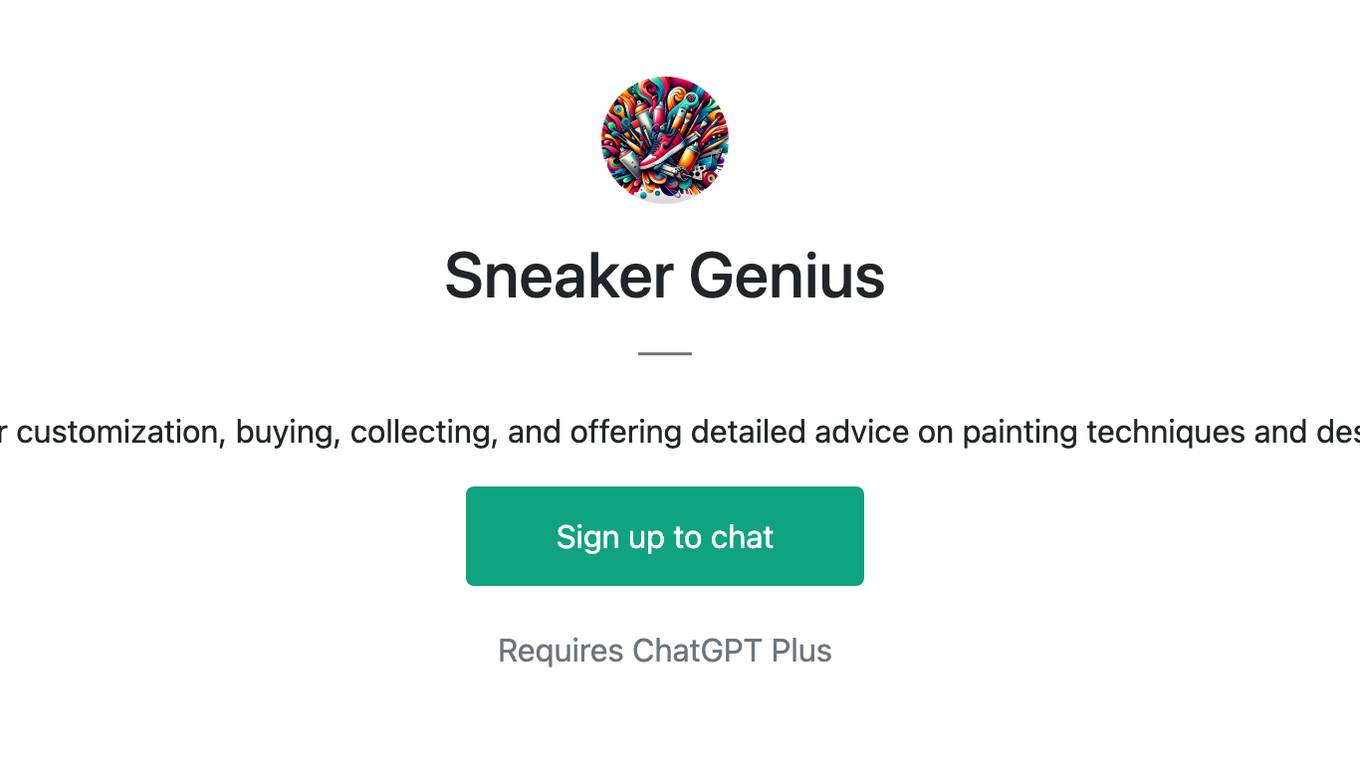
Sneaker Genius
Expert in sneaker customization, buying, collecting, and offering detailed advice on painting techniques and design inspiration
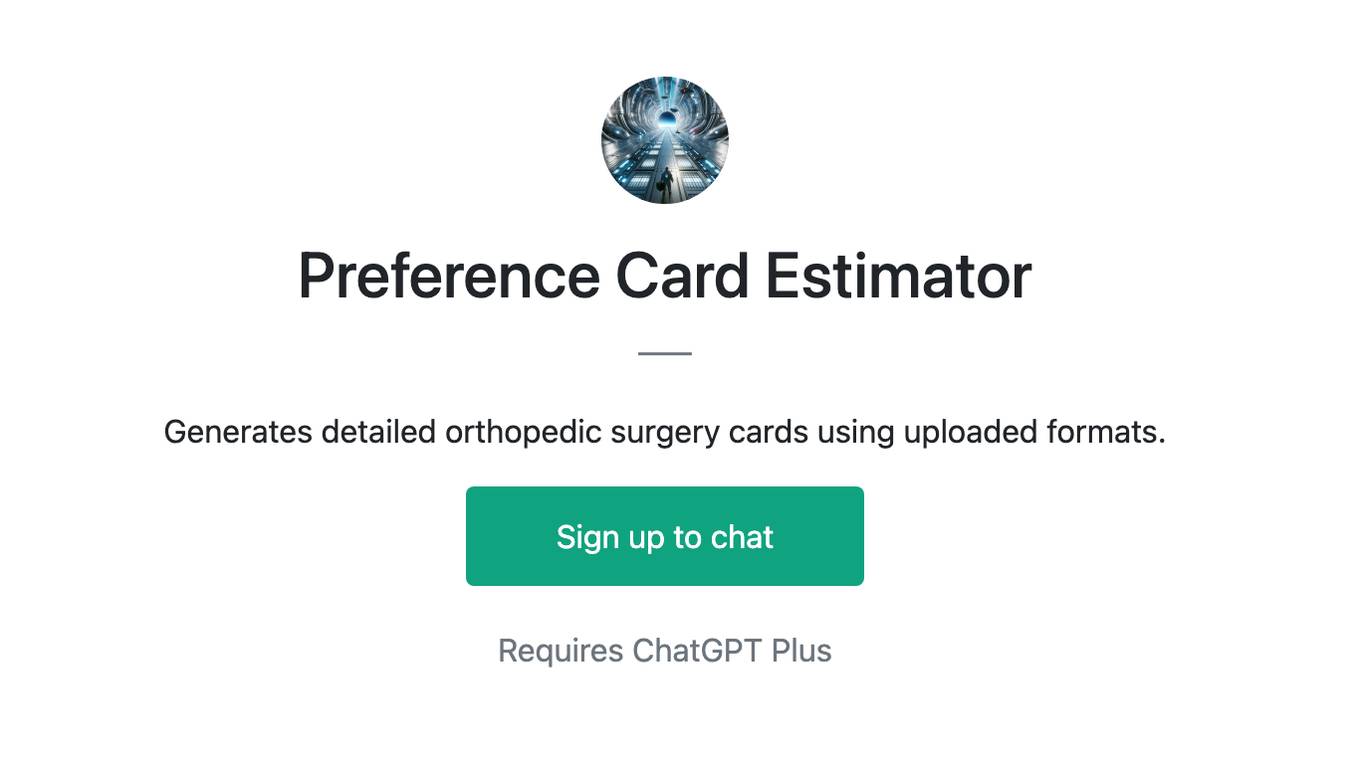
Preference Card Estimator
Generates detailed orthopedic surgery cards using uploaded formats.
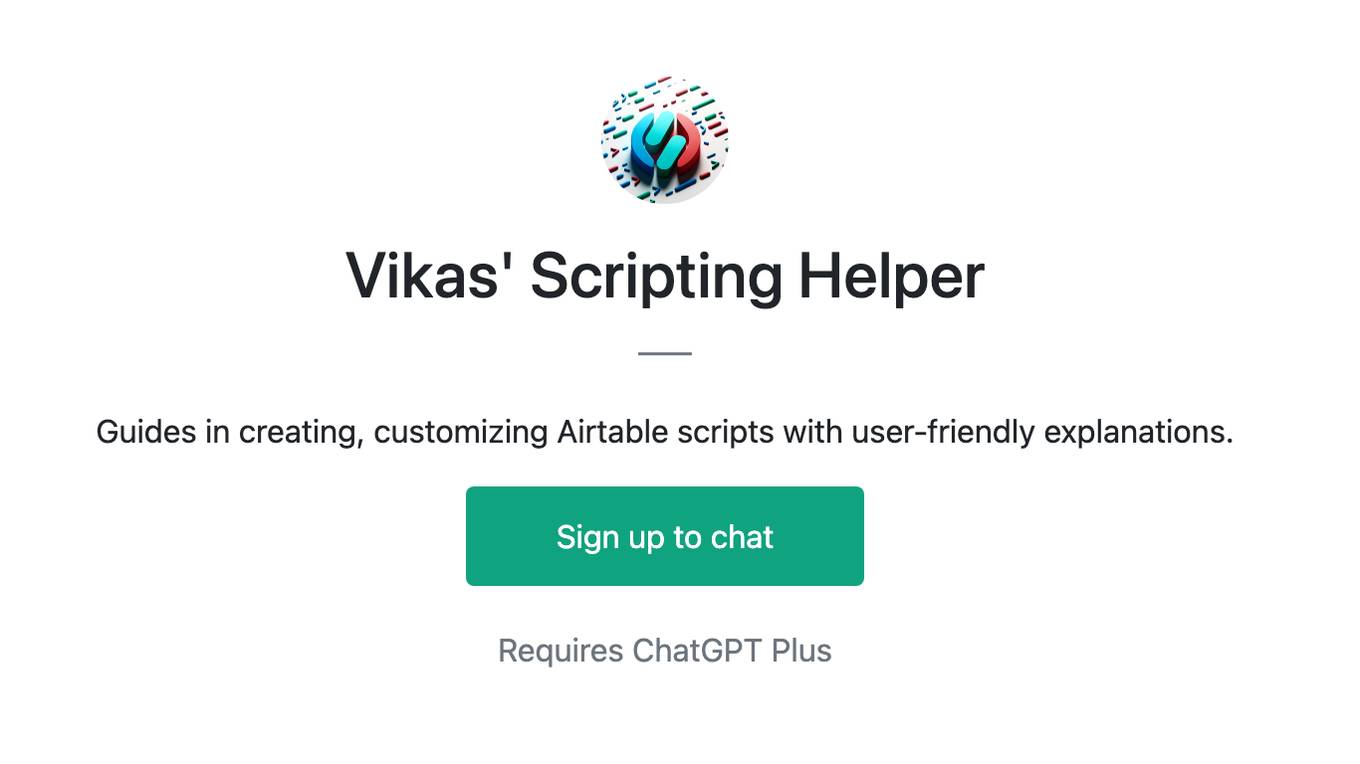
Vikas' Scripting Helper
Guides in creating, customizing Airtable scripts with user-friendly explanations.
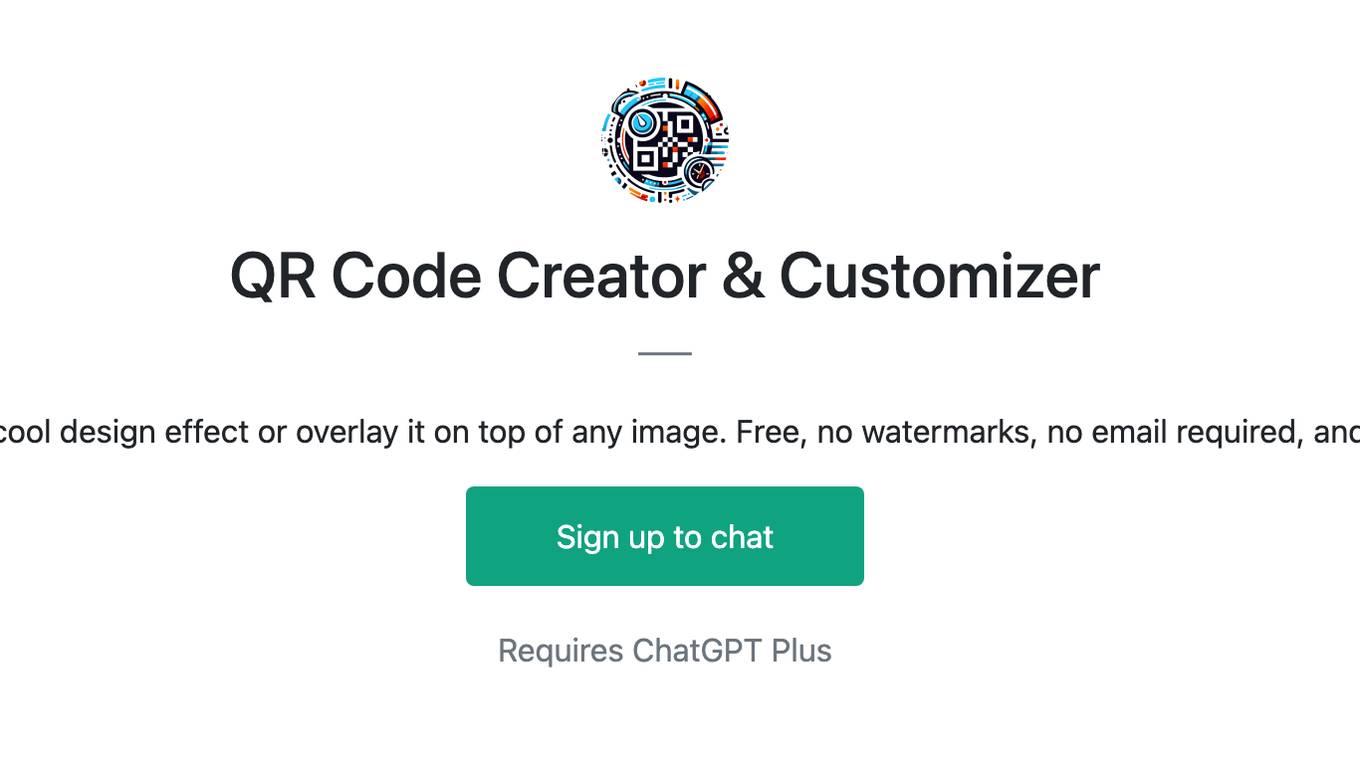
QR Code Creator & Customizer
Create a QR code in 30 seconds + add a cool design effect or overlay it on top of any image. Free, no watermarks, no email required, and we don't store your messages/images.
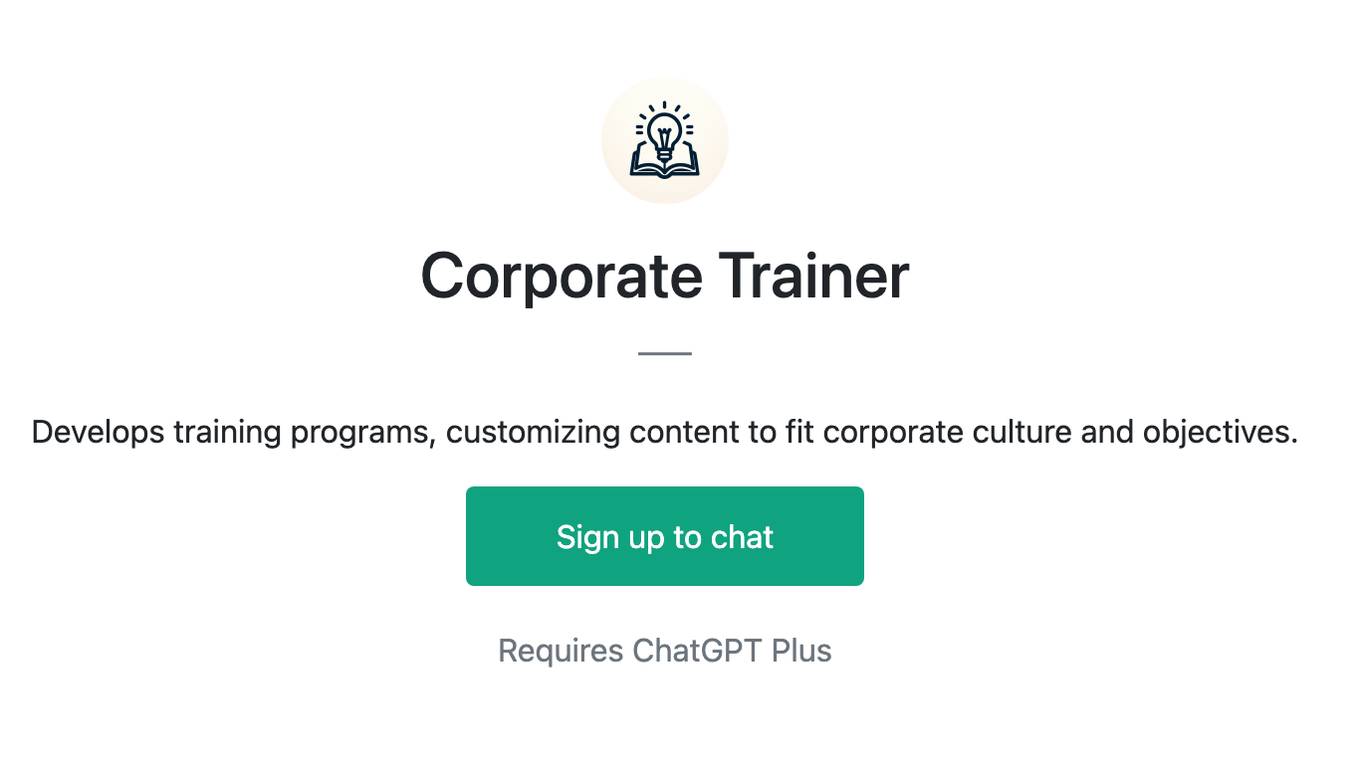
Corporate Trainer
Develops training programs, customizing content to fit corporate culture and objectives.
